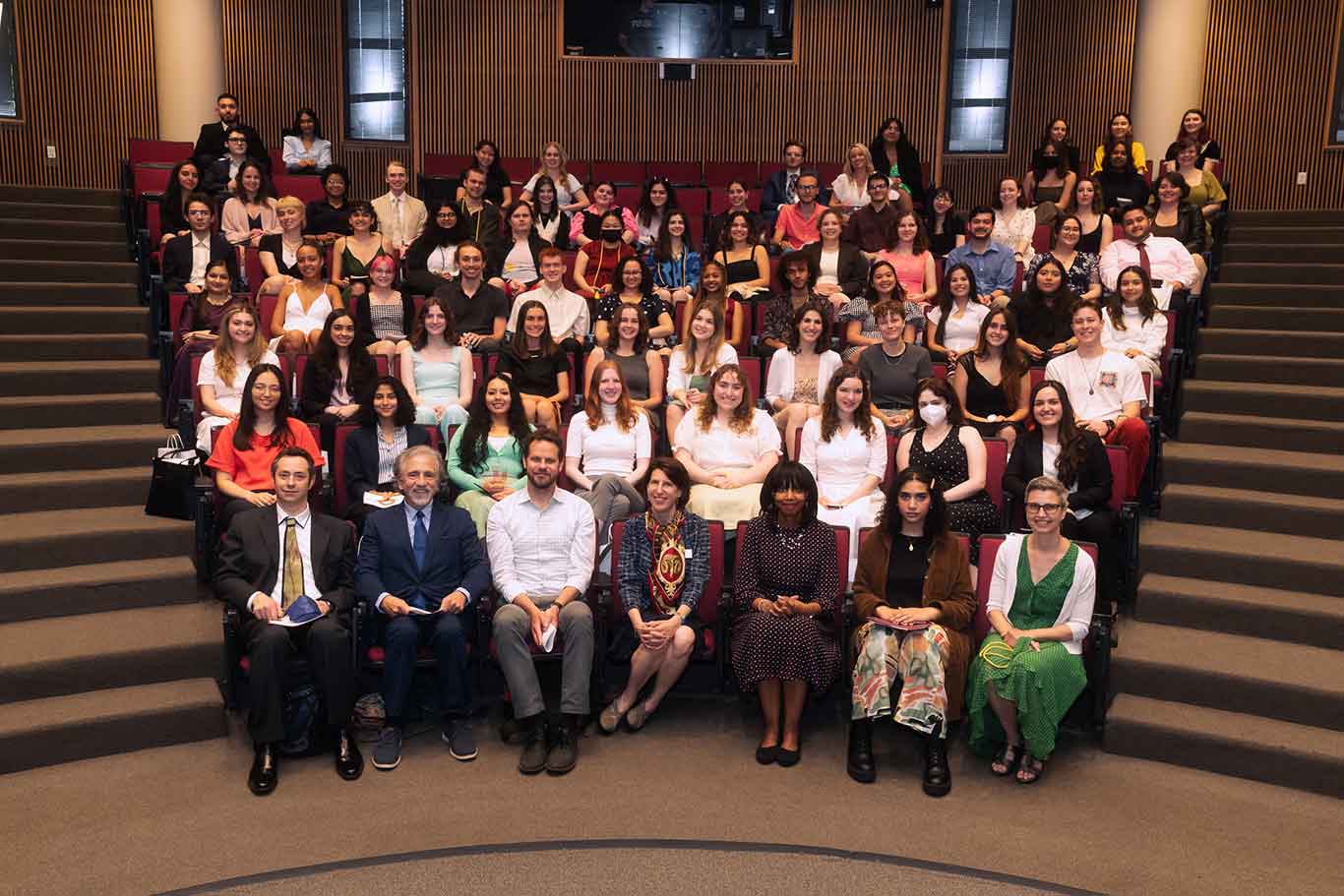These academic advisors are part of the Fordham College Advising Center, a new system that the University adopted following an extensive analysis of students’ needs and nationwide best practices led by Maura Mast, Ph.D., and Laura Auricchio, Ph.D., the deans of the colleges at Rose Hill and Lincoln Center, respectively.
The new system, which was developed and implemented with the input of committees of faculty, staff, and students across the University, provides students with a professional advisor who can help with college logistics, while faculty will continue to provide academic mentoring.
For course schedules, forms and paperwork, degree plans, and assistance in connecting with other University services, such as counseling or financial aid, a student can turn to their new professional advisor. That advisor will work with them during their first and sophomore years. As they transition into junior year, the plan is to assign them a different advisor trained to help them chart their post-graduation path.
Throughout their four years, students will also connect with faculty mentors who will help them deepen their understanding of their chosen disciplines while connecting them with research experiences, internships, and professional networks.
A System Designed for Current Times
The new system is designed to meet the challenges facing the current student body.
“The needs of the students are different today,” said Auricchio. “Anxiety and depression are at all-time highs. Everybody’s saying, ‘There should be more counseling services,’ but not every issue requires counseling, and not every student wants counseling.”
Mast noted that another benefit to the change is that faculty will be free to focus more on academics.
“We know that faculty at Fordham really love connecting with students in ways that can inspire them. We want to build on that,” she said.
“That’s why we’re carving out this role as a faculty mentor that really taps into the strengths of what faculty do.”
The new system, which will be in effect for this year’s first-year students and subsequent classes, is being overseen by Ashlee Burrs, associate dean for academic advising, who comes to Fordham with deep experience in both student affairs and academic advising at institutions including the Jesuit institution John Carroll University, the University of Nevada at Las Vegas, Long Island University, and, most recently, Yeshiva University. Burrs said the new model is meant to facilitate student success by providing a single point of contact.
“The new model is giving us the opportunity to personalize their experience a little more, get to know them, and give them what they need to be successful,” she said.
While some of the advisors —there are five at Rose Hill and three at Lincoln Center—were working for Fordham previously, and some were hired externally, Burrs noted that all have backgrounds that naturally lend themselves to a cura personalis approach.
“They’ve all done that holistic advising, where they can say, ‘Great, you have your classes, what else can I help you with while you’re sitting here? If it’s financial aid, I can pick up the phone and say [to my financial aid contact], “Hey, I have a student who needs help, can I send them over?”’” she said.
Knowledgeable and Ready to Help
One of the beneficiaries of the new system is Dylan Parks, a native of White Sulfur Springs, New York, who is pursuing a degree in international political economy at Fordham College at Lincoln Center. He was paired with Chelsea Wicks, a member of the new advising team who helps students majoring in modern languages, interdisciplinary majors, and the social sciences.
Parks had a “super close relationship” with his high school’s guidance counselor and social worker and was nervous it might be different in college.
“I was pleasantly surprised when I met Chelsea and got to speak with her. She is so knowledgeable and gives what I feel is really good advice. She gives her opinion and can guide you if you’re a little unsure, but ultimately the decision is yours, and she respects that,” he said.
He’s dropped by her office four times since the semester started, including once to ask her about switching out of a class before the deadline for adding or dropping classes.
“I love that she’s very flexible. It really feels like a very collaborative effort,” he said.
Building Relationships
Wicks previously worked as an academic counselor at the University of Louisville and holds an M.A. in Teaching English to Speakers of Other Languages (TESOL). She joined the staff in August, excited about helping to build a new program.
“I think that’s the appeal for a lot of the advisors who got hired. They’re going to have a lot more say and input in the advising model than we would if we had gone into one that was already created,” she said.
She’s especially proud of how the team handled the add/drop deadline, given the sheer number of students who needed assistance in a short window of time.
During that period, Wicks was “averaging 90 emails a day from students asking about their schedules,” she said. “It was hard to get them that info and also build a relationship with them. But that’s really our role.”
Jennifer Giorgio worked at Fordham College at Lincoln Center for over a decade and jumped at the opportunity to be part of a new system, as an advisor at Fordham College at Rose Hill. She now advises students majoring in biology, chemistry, psychology, and social work, along with some undecided students.
“I have students asking me about a variety of things, like counseling services, tutoring, or even things like, ‘Where do I buy my textbooks, or I set up my printer?’” she said.
“I’ve presented myself as the person who they can turn to and will connect them to resources around campus.”
Taking a Holistic Approach
The new system emerged from the work of an 18-member task force that convened in 2020, as well as from feedback solicited throughout the spring of 2022 from a wide spectrum of the University community. Rachel Annunziato, Ph.D., a professor of psychology and associate dean for strategic initiatives at Fordham College at Rose Hill, co-chaired the task force along with Martin DiGrandi, Ph.D., chair of the natural sciences department at Fordham College at Lincoln Center.
The group took stock of the advising system, researched approaches at other Jesuit institutions and at peer institutions, and reviewed recommendations from professional societies focused on academic advising and student success.
Annunziato noted that most universities have embraced the “professional advising” model that Fordham’s new model is based on.
“Across the board on the task force, the most important thing we were looking at was, ‘How could we serve students’ needs more holistically?’” she said.
There’s a real benefit for faculty as well, she said. As a core advisor, Annunziato used to help first-year students make sure they fulfilled their core curriculum requirements. She also advises students who have declared psychology as their major. She no longer has to advise non-psychology majors, and has more time to be an academic mentor to those who can benefit from her specific expertise.
“I think this is going to free me up more in the way of professional development and career development,” she said.
“It’s like a dream to be able to do these things with a partner who is overseeing all the logistics and transactions and is somebody the student has grown comfortable with.”
Improving Advising for All
The Class of 2026 isn’t the only one benefiting from the changes being made. At Fordham College at Lincoln Center, sophomores who would have normally bid adieu to Conor O’Kane, who served them last year as assistant dean for first-year students, can continue to work with him and his staff, since he has transitioned to the role of assistant dean for sophomores. The college has also created a new position called senior director of core advising, which is geared toward sophomores.
Mast said that Fordham College at Rose Hill has always had a strong advising system for sophomores, and noted that they will also benefit from an academic coaching program launched this fall.
“By helping students and connecting them to other resources, we are hoping to really support those sophomores. We are piloting this initiative with the expectation that it will help sophomores, and some juniors, reflect on their goals and strengthen their academic abilities.”
]]>
The process is something that Laura Auricchio, Ph.D., has on her radar, and in a March 7 Zoom meeting, Auricchio, the dean of Fordham College at Lincoln Center, discussed it with the FCLC Board of Advisors—a group of alumni and friends of the college that she reconvened last fall. The group met with Patricia Peek, Ph.D., dean of undergraduate admissions, and Rodger Van Allen, director of development for Fordham College at Lincoln Center, to talk about how they can show prospective students all Fordham has to offer.
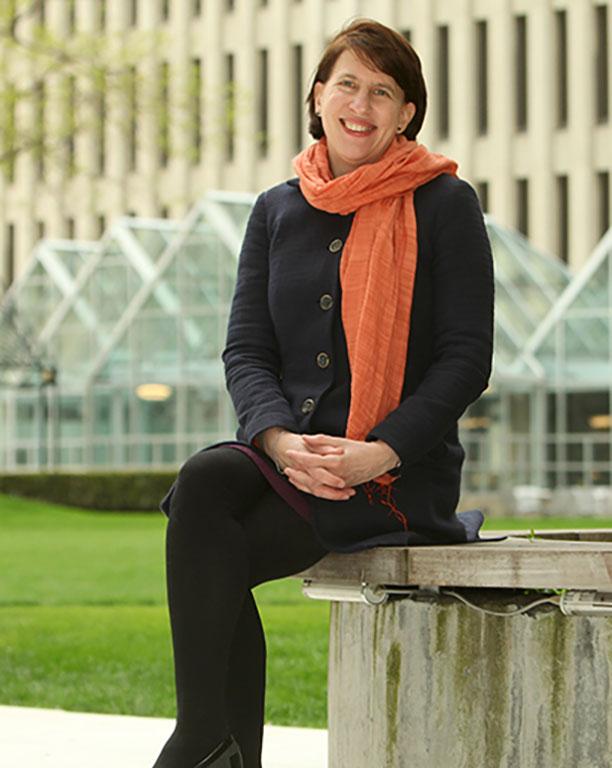
The new board, which is similar to a student advisory group that also began meeting in the fall, is comprised of Maureen Beshar, FCLC ’86; Cathy Blaney, FCLC ’86; Jolie Ann Calella, FCLC ’91; Rick Calero, FCLC ’90; Patricia Dugan Perlmuth, FCLC ’79; Jonathan Valenti, FCLC ’98; and Mark Luis Villamar, GABELLI ’69.
The admissions meeting was just one of many ways this new group of FCLC supporters put their heads together to help the institution they love. This was their third gathering after two last semester—including a joint meeting with members of the new student group.
Raising the Profile
Auricchio revived the Board of Advisors with the hopes of both increasing alumni engagement and substantially raising the profile of the college, which she said is one of the best-kept secrets in New York City. Ask your average New Yorker about the Lincoln Center campus, and they may be familiar with the Law School, but not necessarily Fordham College at Lincoln Center, she said. One way to fix that is to establish a much more robust connection to New York City, and who better to help than a board of advisors, each with deep roots in the Big Apple?
“I fully believe that FCLC can become the premiere liberal arts college in Manhattan, and I think it can be unique in its focus on the arts, its integration in the city, and its commitment to Jesuit values of social justice and more,” she said.
Valenti, a native of Poland, Maine, who visited both the Lincoln Center and Rose Hill campuses as a high school senior, said he was smitten immediately with the idea of living in Manhattan and seeing all of New York as his campus. He said he loves the University’s motto, “New York is my campus, Fordham is my school.”
“My family thought I was crazy. When we went to Rose Hill, they were like, ‘Isn’t this where you want to go?’ I said ‘nope,’” he recalled, laughing.
When he was an undergraduate, he majored in informational systems; now a partner at Deloitte, he said he’s eager to give back. He’s already hosted a gathering of prospective students at the company’s Manhattan headquarters at 30 Rock and wants to do more.
A New Opportunity to Connect
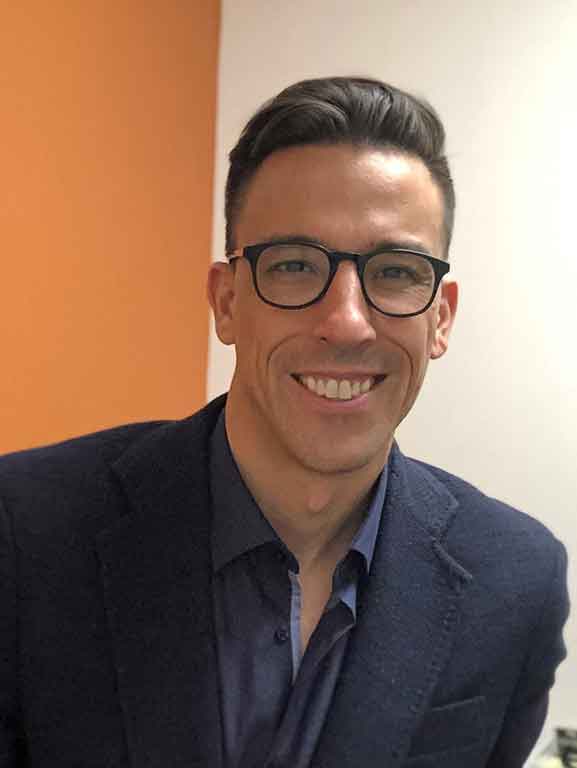
“Fordham gave me a great educational foundation for the work I do,” he said, noting that he was prepared for the convergence of business and technology that has happened in the years since. The advisory board, he said, has given him a new opportunity to connect with others who feel the same way.
“It’s been exciting to be part of a discussion with other alums who have been out there and seen the value of the education and have pride in the school.”
Valenti said he’s especially interested in helping create programs that take advantage of expertise in different disciplines, like combining the arts with law and business. The conversation about admitted students was a good place to start, he said, and gave him hope for future meetings.
“There is a hunger for more of the data that was shared by the admissions side. We’re looking to understand where the students are coming from, and why they’re choosing Fordham,” he said.
“People do question the value of a liberal arts education, and the way we function at work is changing and evolving, and so Fordham has a chance to be setting that agenda.”
Auricchio said that although the first meetings—there is one more left this semester—have primarily been focused on getting the group off the ground, it’s key to her that the group is action- and goal-oriented. Participants at the March 7 meeting made it clear they feel the same.
“I don’t want to waste anybody’s time. I want to find ways to build connections through the whole student pipeline, from the time when students apply, to when they meet alumni, through the time that they’re students, through their alumni experience after they graduate,” she said.
“I see this as a virtuous cycle. If we start engaging them as students, while they’re students, they develop stronger connections to the college, and to each other.”
]]>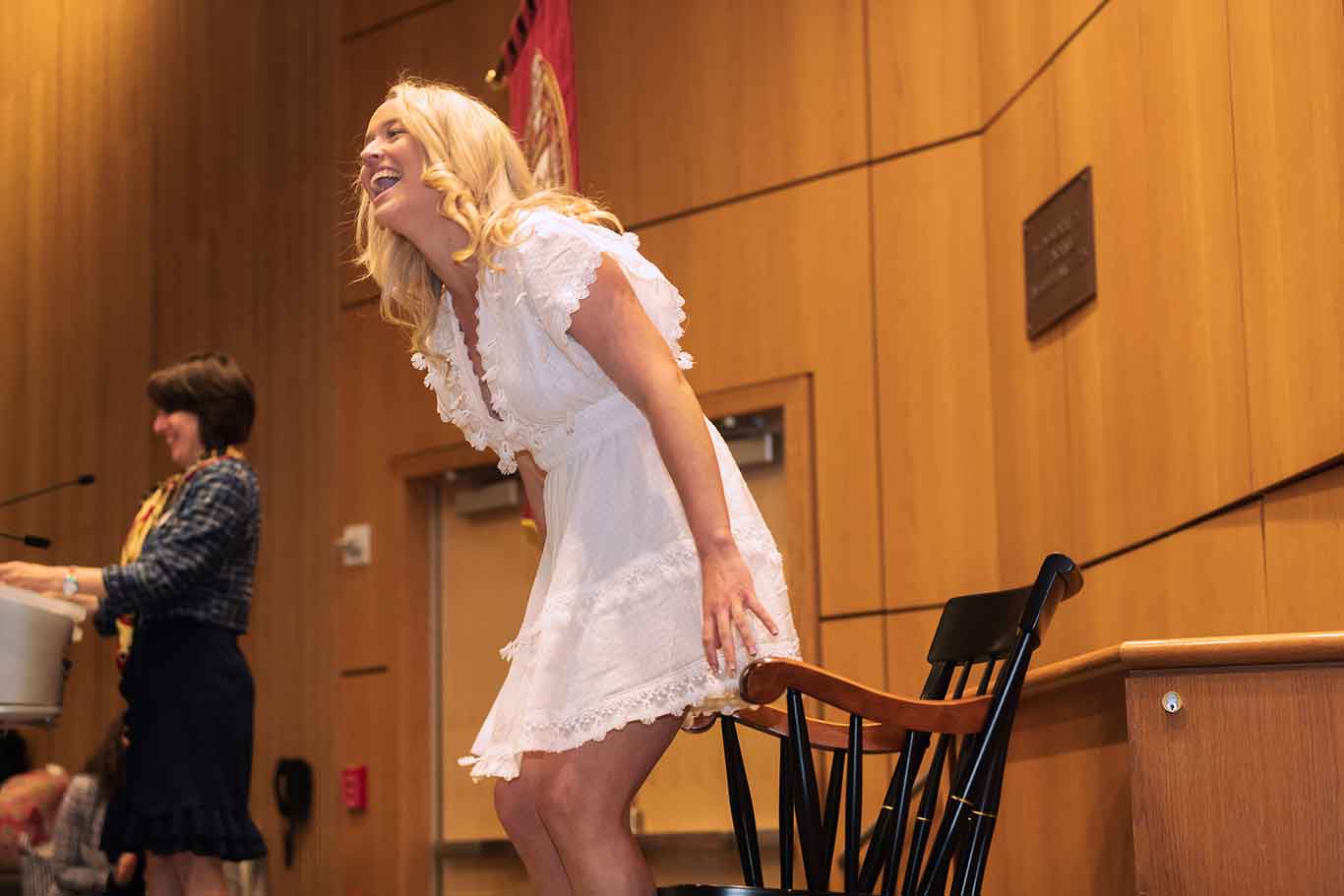
The FCLC Alumni Chair Award was given to graduating senior Lindsey Fritz, who was lauded as a “phenomenal ambassador for the Fordham community,” an energetic mentor for first-year students, and an enthusiastic team member at alumni events.
Awards were also given to students who’d excelled in disciplines ranging from the arts and sciences to the social sciences and the humanities. Four of them shared their thoughts about what their field meant to them.
Back On Stage
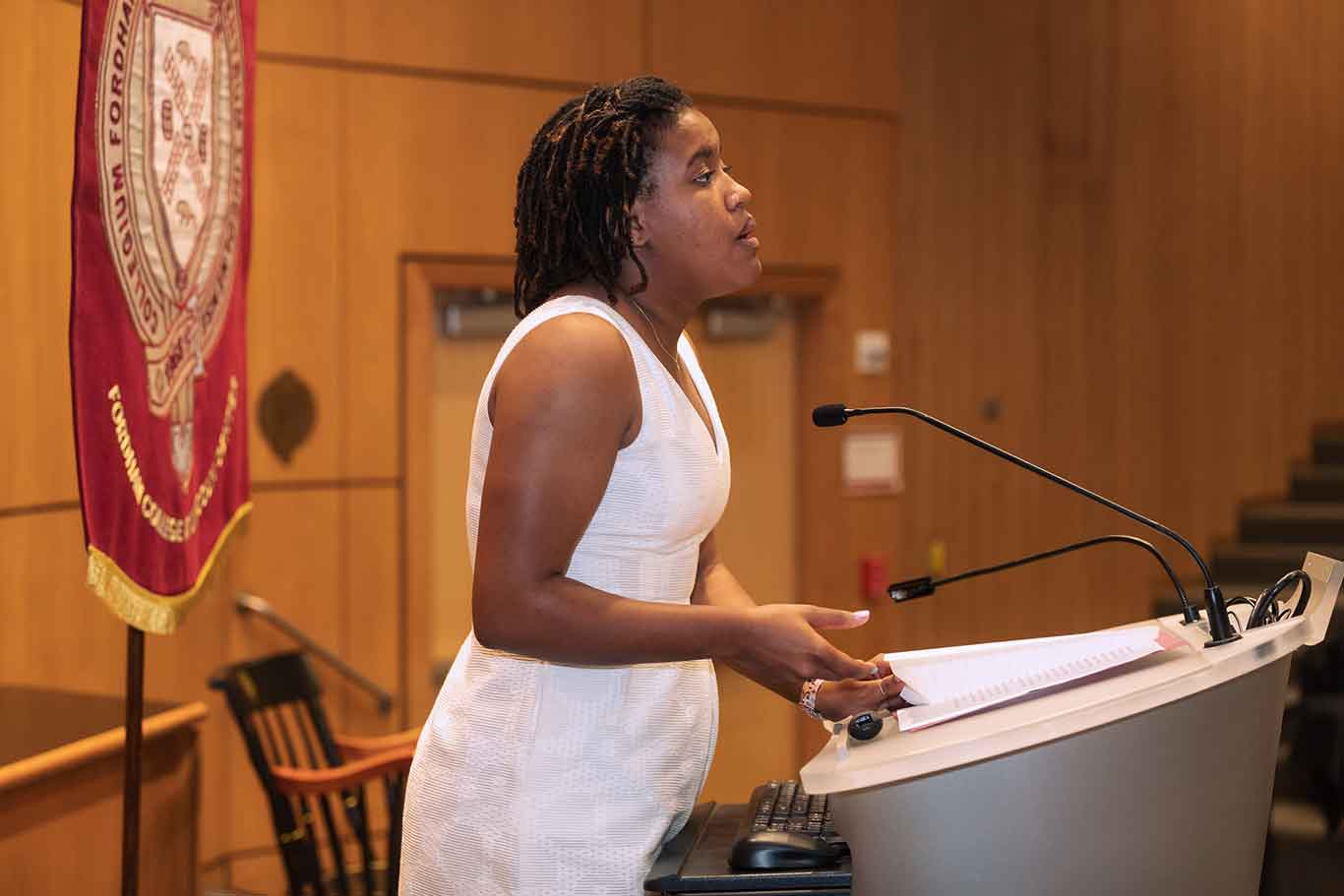
Marley Poku-Kankam, a junior enrolled in the Ailey/Fordham BFA program in dance who was asked to speak about the arts, said she was honored to be part of a community that has persevered, grown, and thrived. Attending the annual BFA benefit concert when it returned for in-person performances on May 2 after a three-year hiatus brought it all home for her.
“My heart lit up when I saw my friends and colleagues dance on the stage again. I was a volunteer at the event, and I was beyond amazed and inspired by the dancers,” she said.
“Cheering on my fellow artists reminded me how lucky we are to be doing what we love on one of the most unique college campuses in one of the most creative cities in the world.”
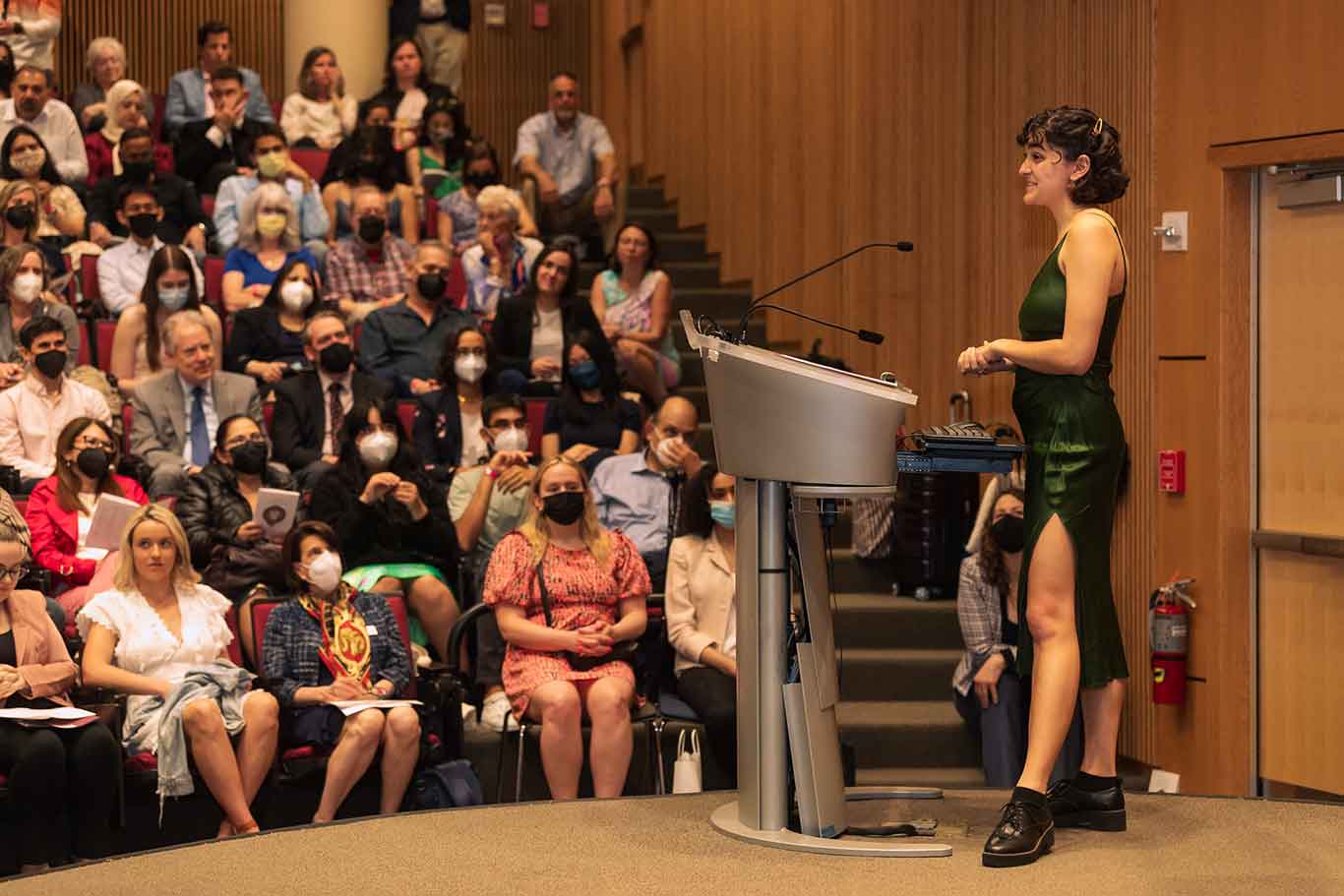
Shannon Rao, who would graduate with a Bachelor of Arts in English Language and Literature, talked about how the humanities gave her the ability to read with a critical eye and communicate effectively with specific audiences.
“The humanities have given me the skills to interact with the world, to understand it, and to, in my own small way, work to change it,” she said.
“I wanted to deeply examine this world that we live in, in my case through the lens of literature.”
‘Something Slightly Magical and Incongruous’
Batool Adelhafez, an anthropology and psychology major who was asked to speak about the social sciences, said she was grateful that her professors addressed fundamental issues of neocolonialism, capitalism, and stubborn barriers to mental health access. As a queer Arab woman, she noted that her identities naturally intersected with her studies.
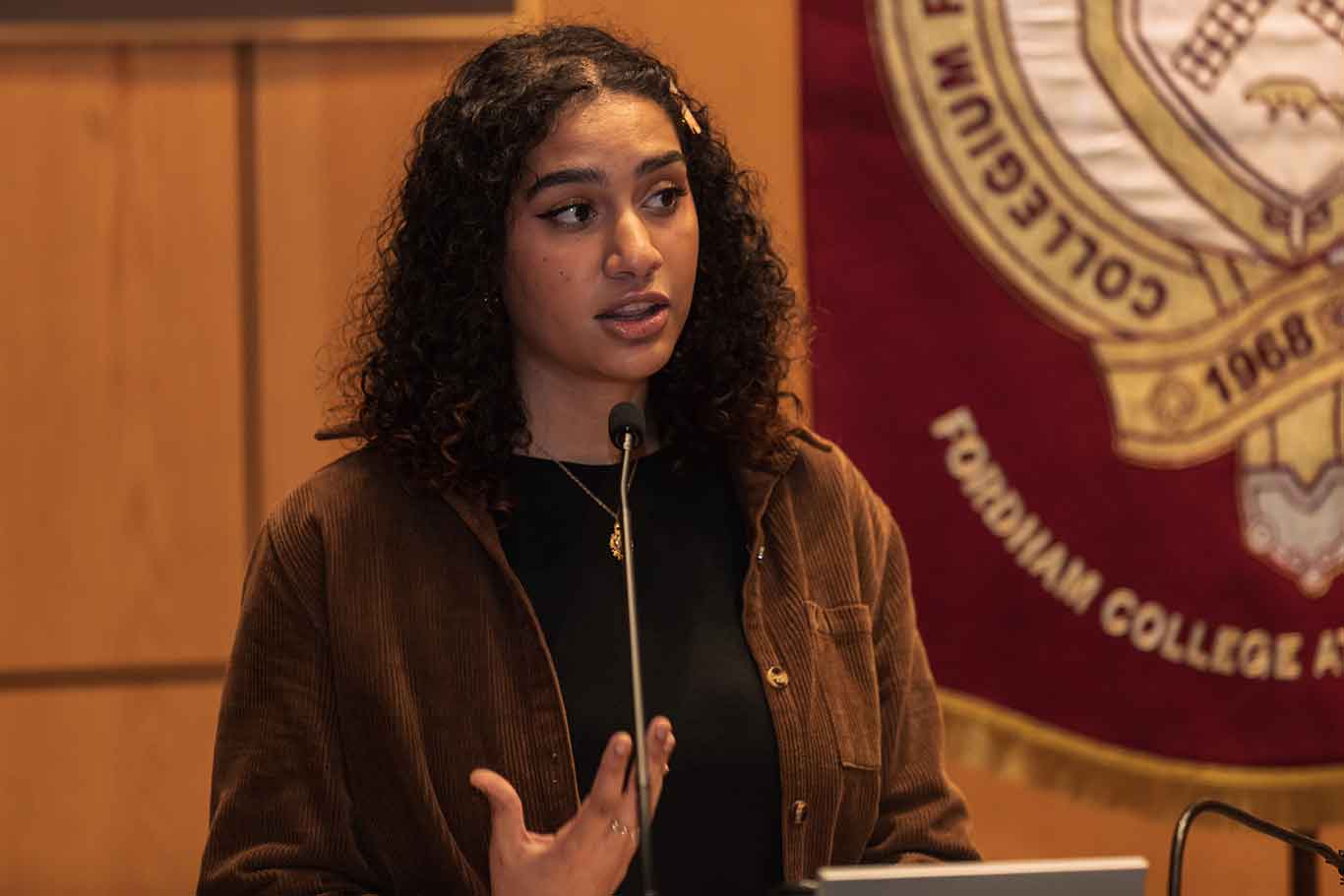
“In one semester, I had a class on psychopathology, and I had another class on global South megacities. Within these two classes, I drew connections between mental health disparities among the displaced, dispossessed, and marginalized communities,” she said.
“One of the most persistent lessons that FCLC has taught me is that no matter what I should do in life, I should do good for others and help those who need it.”
Vincenzo Harty, an integrated neuroscience and French studies major, joked that he was surprised to be asked to speak about the sciences, as he was “possibly the least science-y of science people,” and spent as much time around the arts as he did the science lab.
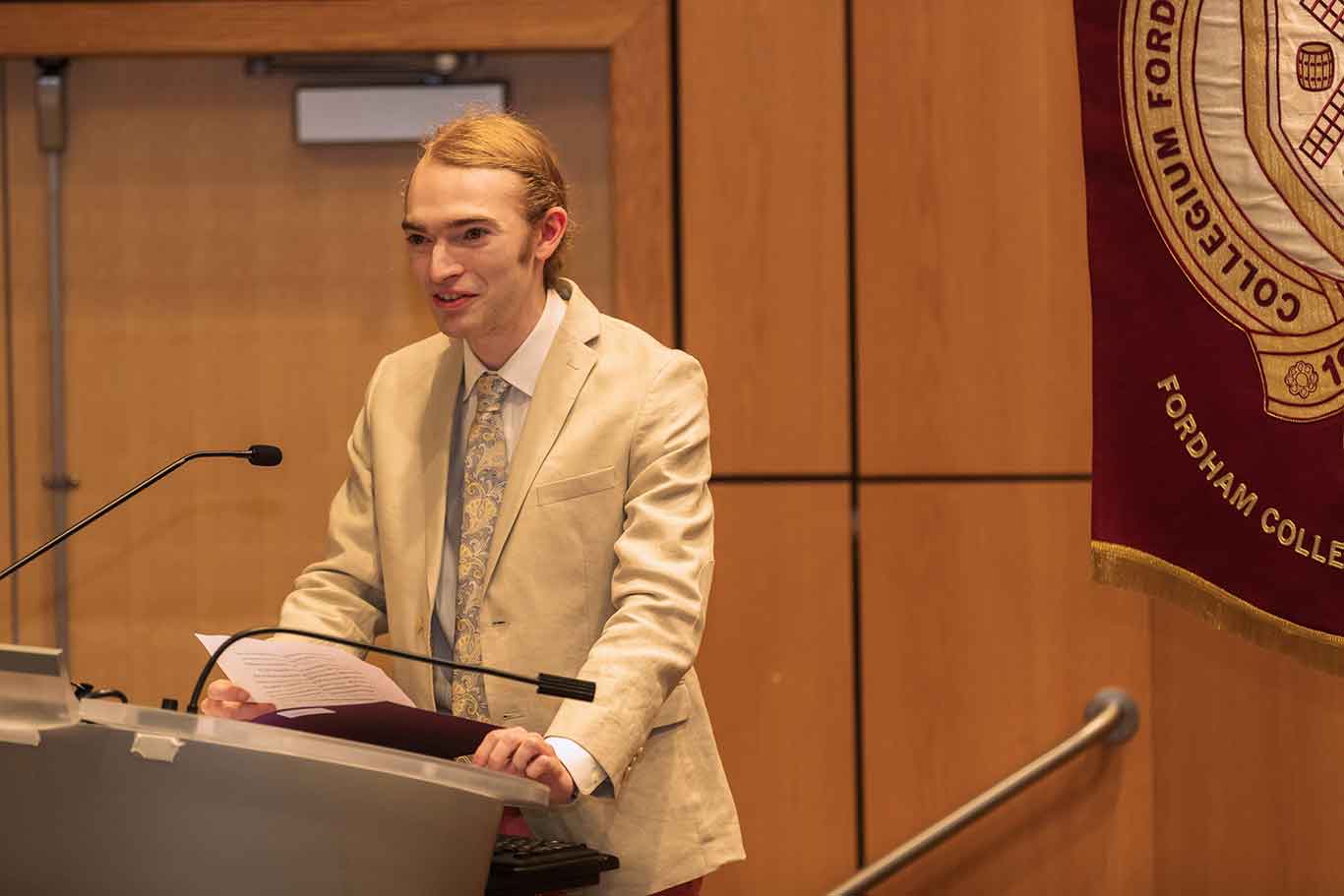
He credited Jason Morris, Ph.D., professor of biology, for introducing him both to Fordham and to integrated neuroscience.
“The science department here at Lincoln Center is unique and wonderful. It’s a great group of faculty and students who all feel like a family,” he said.
“There’s something slightly magical, and perhaps incongruous as well, in undertaking biology experiments in labs on the eighth floor of a Manhattan skyscraper with a view of the performing arts capital of the world outside the window.”
A First for FCLC
It was the first time FCLC held an awards ceremony prior to Commencement. When Laura Auricchio, Ph.D., became dean of the school in 2019, she learned that, unlike Fordham’s other undergraduate schools, FCLC’s awards had been presented at their diploma ceremony. She vowed to change that—starting in June 2020.
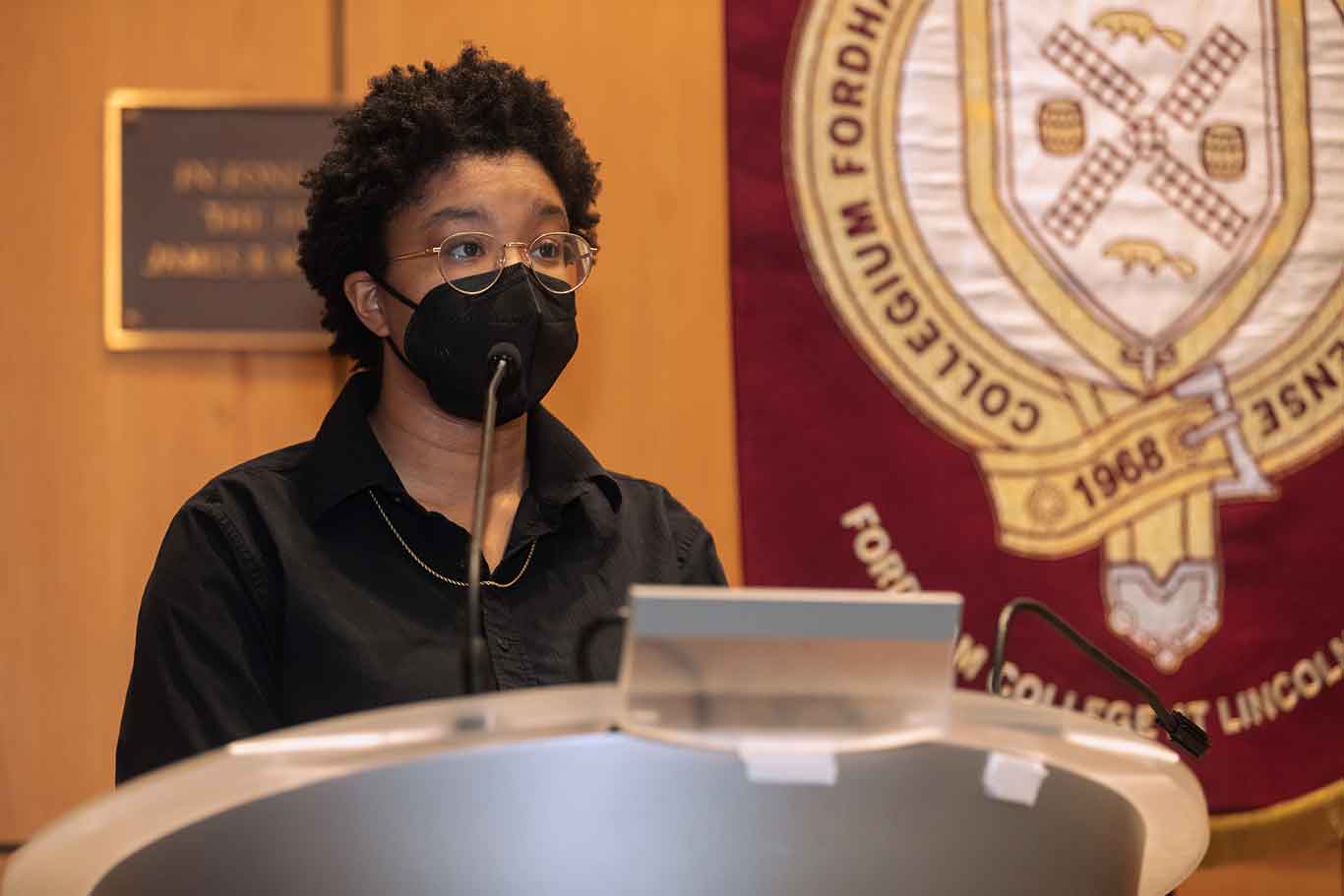
“Apparently, COVID had other plans for all of us,” Auricchio said to laughs from the crowd. “But after multiple false starts, here we are, three years later, belatedly fulfilling that promise.”
Keynote speaker Daejah Woolery, a creative writing and film major, drew parallels between college and a four-season television show.
“Though each of our foundations is different, altered by our backgrounds and our hearts, they all have something in common. We chose Fordham, and with that foundation, we built a series one day, month, and semester at a time,” she said.
Awards vs. Rewards
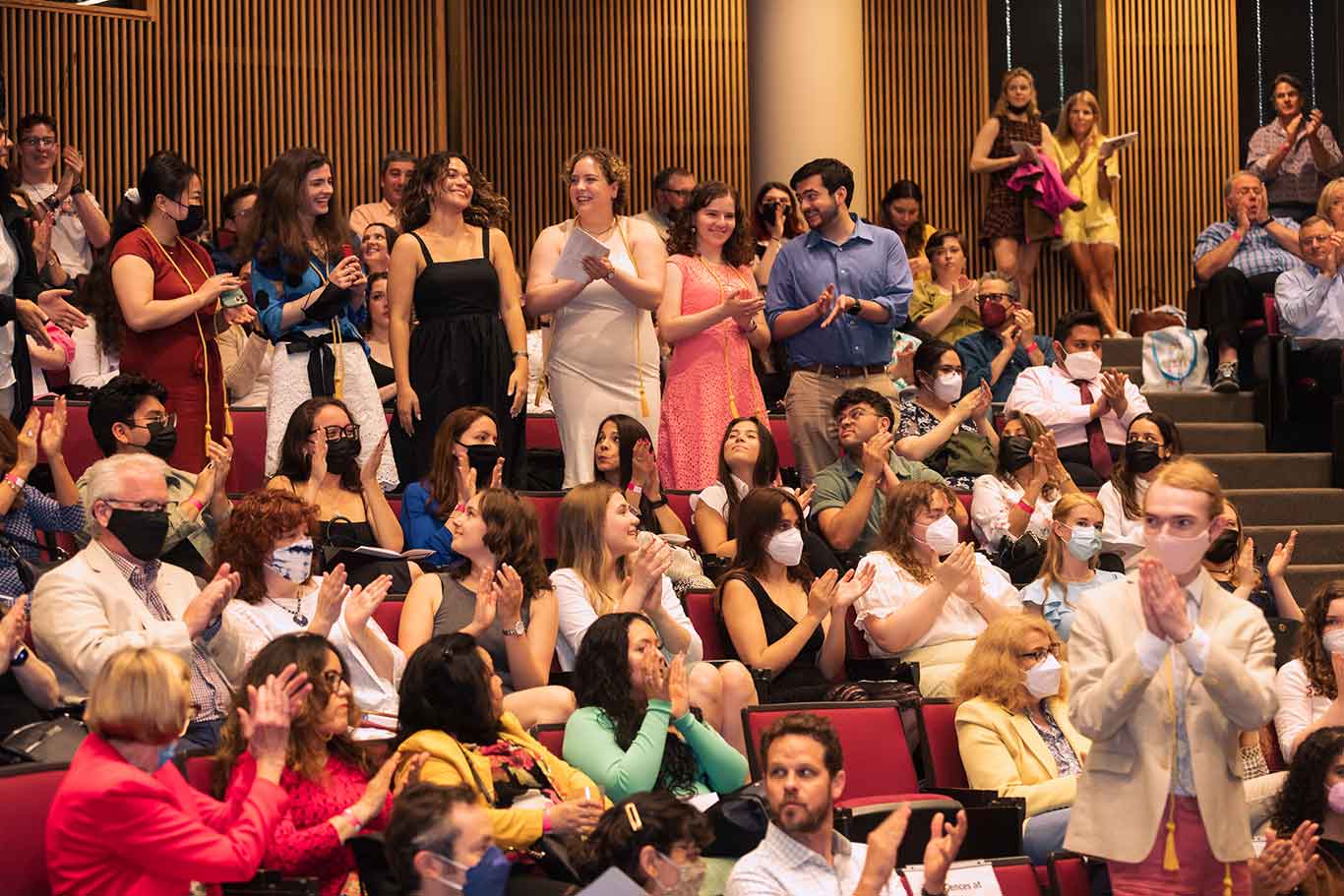
She encouraged her classmates to consider the difference between an award and a reward.
“An award is given in recognition of an achievement. A reward happens as a result of passion. Sometimes it’s given, and other times it’s completely intrinsic to the experience. Each of the awards given here tonight detail an achievement we should be proud of, remember, and celebrate,” she said.
The joy of making it to the end of “the season” and recalling how they made it, she said, is also a reward in and of itself.
“This intangible celebration, the electricity in the air as graduation nears, the reasons we never stopped going. … We did it. We did it. We won.”
“Thank you for making this finale as rewarding as it was exciting.”
]]>Deciding on Fordham involved a bit of serendipity. A fellow Kinder alum, Chandler Dean, FCLC ’18, was already enrolled at Fordham College at Lincoln Center and loving it. But Freedman also had her eyes on Georgetown. Her father suggested she visit the Lincoln Center campus to help her decide, and after a tour, they took a break on the Plaza.
Taking in the scene, her father noticed for the first time the name of the Lowenstein Center. Leon Lowenstein, the man for whom the building is named, also funded a scholarship that allowed him to attend University of California at San Diego. The moment felt like fate.
“That was one of those moments where I believe everything kind of happens for a reason,” she said. After that, she and Dean spoke at length, and his recommendation convinced her to enroll in the FCLC honors program. On May 21, she will graduate as a dual political science/film and television major.
But the serendipitous moments didn’t end with that afternoon on the Plaza.
Freedman’s senior project, which was supported by an FCLC Dean’s Senior Thesis/Capstone grant, is a play titled “Self Portrait of a Modest Woman,” about the life of the artist Adélaïde Labille-Guiard. A staged reading of the play directed by and acted out by theatre students was held in front of a small audience at the Lincoln Center campus on April 25.
Freedman’s play was inspired by Labille-Guiard’s painting “Self-Portrait with Two Pupils,” and takes place in 18th-century France and the present-day gallery in the Metropolitan Museum of Art, where the painting resides. Freedman said became fascinated with the work during an art history course, and in the process of writing a paper on it, was dumbfounded by how little research there is about Labille-Guiard.
“I was only able to find one biography about her, and I adored it. I kept it in my bag for several weeks and I would pull it out and take notes. While reading it, I was like, ‘This would make such a good screenplay. It’s such a good story,’” she said.
It turns out that the biography, titled Artist in the Age of Revolution (Getty Publications, 2009), was written by none other than Laura Auricchio, Ph.D., dean of Fordham College at Lincoln Center.
“It’s so incredible for me to be able to know the only biographer of this French 18th-century artist, and to be able to ask her what she thinks about certain people and their lives,” she said.
Like her classmates, Freedman had spent a year and a half mastering in-person learning before having to pivot to remote learning in March 2020. Living in Houston added another wrinkle, as her home was one of the thousands whose water pipes froze and burst in February 2021 when the Texas power grid failed. Her family ended up living in a hotel for nearly six months during the pandemic, a period in which her dog went half blind and she needed to visit the hospital several times.
“It was such an intense experience. I jokingly refer to this as my study-abroad time in Houston, because this also would’ve been the time that I would’ve potentially been studying abroad,” she said.
A Potential London Debut
Freedman still made the most of her time. During her sophomore year, her first full-length play, The Wilde and Rambling Consequence of Being Virginia, was a finalist in a playwriting competition sponsored by the Questors, a theater company in London helmed by Dame Judi Dench.
That in turn led to a partnership with a director at the theater to have Freedman write a new play, which may be staged at the theater company’s stage in the future.
She said the honors program has been everything that she hoped it would be, both because of the academic rigor and the camaraderie she developed with her 20-member cohort.
“I just really adore every single person in my class. The honors program is kind of like a sorority, because you have what’s like an intense hazing process your freshman year, where you have four honors classes,” she said.
“But that’s exactly what I wanted.”
Karina Hogan, Ph.D. a professor of theology and director of the FCLC honors program, had Freedman in her Sacred Texts of the Middle East.
While some students arrive their first year with a ‘deer caught in the headlights’ look in their eyes, Hogan said that Freedman stood out from the beginning as knowing exactly what she wanted.
“She is just an outstanding student and is really happy to volunteer and help out with things in the honors program, like mentoring other students,” she said.
After graduation, Freedman is going to take a few months off to travel with her roommate Gabby Etzel, with whom she started the website Absolutely Anything.—which chronicles their adventures in New York and beyond. At some point, she expects to travel to England, to help shepherd the play to completion.
“Joan Didion has a wonderful quote that I always whisper to myself: ‘I don’t know what I think until I write.’ I think that’s so true,” said Freedman, who also writes screenplays.
“Playwriting and screenwriting is a way of understanding the world, how you feel about it, making sense of all of the insanity, and trying to find cohesion in a theme.”
]]>
Photo by Patrick VerelSana Toor’s ideal route to a career in neuroscience passes through medical school.
But to get there, Toor, a first-year student at Fordham College at Lincoln Center, needs to master calculus. So, when she realized in January that she needed a little help this semester, she turned to an app on her smartphone that was unveiled to Fordham undergraduates this fall.
The app is similar to those that allow customers to summon a ride with Uber or Lyft. Students seeking a tutor for a class they’re taking put in a request for a specific time and place, and if a student tutor who has completed the class finds that the request fits their schedule, they accept the request.
Any student can become a tutor provided they have received at least a B+ in that class and have been trained on how to instruct others. Tutors are paid $15 an hour with funds from the offices of the deans of the Fordham College at Rose Hill and Fordham College at Lincoln Center. (The app will be available to Gabelli School students in September.)
Toor, a native from Farmington, Connecticut, heard about the app from one of her professors, and after downloading it to her phone and putting in a request, she met with Arina Medvedeva, a sophomore majoring in neuroscience and visual arts. The two have met for both in-person and Zoom meetings eight times this semester, including a two-hour cram session before her midterms.
“She’s amazing. … I’m doing a lot better than I would have without a tutor,” she said.
Quick, Easy, and Free
Toor said she’s found it helpful to work primarily with Medvedeva but has also used the app to book other tutors.
“I’ve had SAT tutoring before, and for one session, I felt like I didn’t learn anything, and it was also so much money for an hour,” she said.
But the fact that I can just send out a request and in five minutes, I’ll get a tutor, and Fordham will pay for it? I think that’s amazing. I’m glad I’m taking advantage of it.”
Earning Money on Their Own Schedule
Medvedeva is also a fan. This semester, she has been tutoring three other students in Applied Calculus on Friday afternoons and evenings, and one more with whom she meets occasionally to review statistics. In addition to working 10 hours a week on campus as part of work-study, Medvedeva, a commuter student who lives near the Lincoln Center campus, tutors for at least five hours a week.
“I love helping people, and I think I have a talent for explaining things,” she said.
“It’s also an opportunity to refresh my memory. Right now, I’m taking chemistry, and there’s a lot of math. I understand better what’s going on because I’m also tutoring.”
Charlotta Lebedenko, a senior at Fordham College at Rose Hill majoring in chemistry and philosophy, has responded to requests on the app for tutoring in organic chemistry and biochemistry.
“What I like about it is … we get to choose what and when we want to tutor, so I know I’m always going to be prepared for the sessions,” she said.
“The app is nice, I like how it’s formatted, the payments come in super quickly. The online virtual platform is really nice.”
A Flexible, Peer-to-Peer Model
The move to an app-based tutoring system was spearheaded by Tracyann Williams, Ph.D., assistant dean for student support and success at Fordham College at Lincoln Center, and Christie-Belle Garcia, Ph.D., former assistant dean for student support and success at Fordham College at Rose Hill.
Williams said the program, which both she and Garcia discovered independently, is not meant to replace all tutoring happening at Fordham, but to augment it. It’s an example of the University being flexible in how it offers services to students.
“If we have other tutoring systems and resources, that’s awesome, because that means we’re serving students on multiple levels and multiple capacities. That’s a very exciting prospect,” she said.
“I’m very interested in this peer-to-peer model because students get experience working with each other and building connections with each other. They’re building cross-campus connections at a time when students are suffering and are saying it’s hard to meet people.”
There are currently 180 courses that are covered through the system. Math is the most popular, along with other STEM disciplines and philosophy. A handful of departments have not opted in, but most have, said Williams.
Maura Mast, Ph.D., dean of Fordham College at Rose Hill, said that in the summer of 2020, the college piloted online tutoring for summer courses, and expanded them in the next academic year. That experience led her to consider this system.
“Tutoring needs to be supported with strong training and oversight. This offers all of this, plus the flexibility for students to arrange for tutoring when and where it works best for them,” she said.
“I’m delighted with the strong growth in utilization over the past six months.”
Laura Auricchio, Ph.D., the dean of Fordham College at Lincoln Center, called the app a “game-changer.”
“Instead of expecting students to work around schedules set by the university, it allows them to decide when, where, how, and with whom they want to learn. It’s an important step in our collective efforts to rethink our systems and structures with an eye to ensuring that student needs are always at the center of our policies and practices,” she said.
]]>“Everyone brings something important to the table, regardless of the level of education you have,” said J.D. Lewis, Ph.D., a biological sciences professor who is leading the Fordham team in the Howard Hughes Medical Institute’s Inclusive Excellence 3 Learning (IE3) Community. “Through this collaborative effort, we want to figure out how to teach STEM in a way that is accessible, relevant, and interesting to all our students.”
Fordham is among more than 100 institutions involved in the IE3 Community. The goal of the initiative is to improve STEM teaching and learning in higher education, especially for first-generation college students, transfer students, and students from underrepresented backgrounds.
More Inclusive Intro STEM Classes
After applying to be part of the initiative in 2019, Fordham was accepted into the inaugural cohort in 2021. The institutions were grouped into seven clusters, each with an assigned goal. The goal of Fordham’s cluster is to make introductory STEM course content more inclusive. Ultimately, Fordham wants students who better reflect the racial and intersectional diversity of the Bronx community to enter STEM disciplines and graduate at rates comparable to those of majority students, said Lewis.
Lewis leads Fordham’s IE3 leadership team, which is currently planning the details of the project. They are joined by Dean of Fordham College at Lincoln Center Laura Auricchio, Dean of Fordham College at Rose Hill Maura Mast, Associate Professor of Chemistry Robert Beer, Associate Professor of Biological Sciences Patricio Meneses, and CSTEP Director Michael Molina.
One of the team’s goals is to build on the University’s previous successes with mentoring and early research experiences, especially Project TRUE, the ASPIRES Scholars program, the Calder Summer Undergraduate Research Program, and Fordham’s Collegiate Science and Technology Entry Program, said Lewis. For example, they are currently working with CSTEP to include more CSTEP students in research opportunities earlier on in their time at Fordham, said Lewis.
The team will also assess the University’s data on students taking STEM classes, starting with the biology department. They are planning on studying student outcomes, including the DFW rate—the number of students who earn D’s or F’s or withdraw from the course, said Lewis. They may also interview introductory biology instructors and students to understand the support they might need, said Lewis.
“From them, we can get a sense of what’s working, what isn’t, what they’re struggling with, what they’re concerned about, and where and why they may not feel included,” Lewis said.
Earlier Research Opportunities Built Into the Curriculum
In addition, the team is working on integrating student-directed research earlier in the STEM major. Upperclassmen typically conduct their own research in labs on campus, said Lewis, but their team is revising the curriculum so that they can introduce research to students as early as their first year of college. For example, the biology department recently introduced “research modules,” a new component in an introductory biology lab that gives students more creative freedom, said Lewis.
“Instead of students simply following a manual type of lab activity, they are doing research where we don’t know the answer beforehand. They are experiencing those eureka moments, while still learning biology skills,” Lewis said. “Instead of waiting to work in a lab as a junior, they’re doing research that is yielding an unknown result—now, as a second-semester first-year student.”
This fall, Fordham will finalize its project plan in collaboration with 14 other universities. Over the next six years, they will work together to achieve their goal through nearly $8 million in shared funding from the Howard Hughes Medical Institute, a science philanthropy organization founded by aviator and industrialist Howard R. Hughes.
“We want all Fordham students and prospective students to see and feel that they can be successful in a STEM major and career,” Lewis said. “I hope that our data will lead us to what that should look like.”
]]>
That started with an Instagram post from her personal account every day of her first month on the job, followed by the creation of a weekly newsletter from the dean that is sent to every FCLC student. This year, she reconvened the Fordham College at Lincoln Center Student Advisory Group, a group of students representing different class years, genders, majors, and geographical backgrounds.
The group, which has 15 members, has met three times this year over Zoom and in-person and will meet once more over Zoom this semester.
Auricchio said the impetus for restarting the group, a form of which also exists at Fordham College at Rose Hill and the Gabelli School of Business, was simple.
“I decided that what I really needed was to have some way for students to raise their concerns to me and give me a sense of what’s going on the ground, so I can better serve them,” she said, noting that her Instagram account and newsletter have been well-received by students, but they’re both one-way channels.
“One of my goals is to empower students so they have will have a better understanding of how they can find the information they want.”
The inaugural meeting was an introduction to the group, and the second one was a joint meeting with the members of another newly revived advisory group comprised of alumni.
A third meeting was held in late February, where students listened to members of the Fordham faculty and administration describe what shared governance means to them. In higher education, the concept of governance refers to structures and processes through which faculty, staff, administration, governing boards, and students participate in the development of policies and in decision-making.
For that meeting, the group was joined by Andrew Albin, Ph.D., an associate professor of English and medieval studies who represents FCLC in the University’s faculty senate; Jenifer Campbell, Ph.D., dean of students at Lincoln Center; Andrew Clark, Ph.D., a professor of French and comparative literature who represents the department of modern languages and literature in the FCLC’s College Council; Jonathan Crystal, Ph.D., vice provost; Gene Fein, Ph.D., assistant vice president for academic records and services; and Robert Moniot, Ph.D., associate dean at Fordham College at Lincoln Center.
The format of the meetings is still in the beginning stages, but Auricchio said she expects the agendas will be determined in tandem with the students, who were selected from an open call that went to students in the early fall.
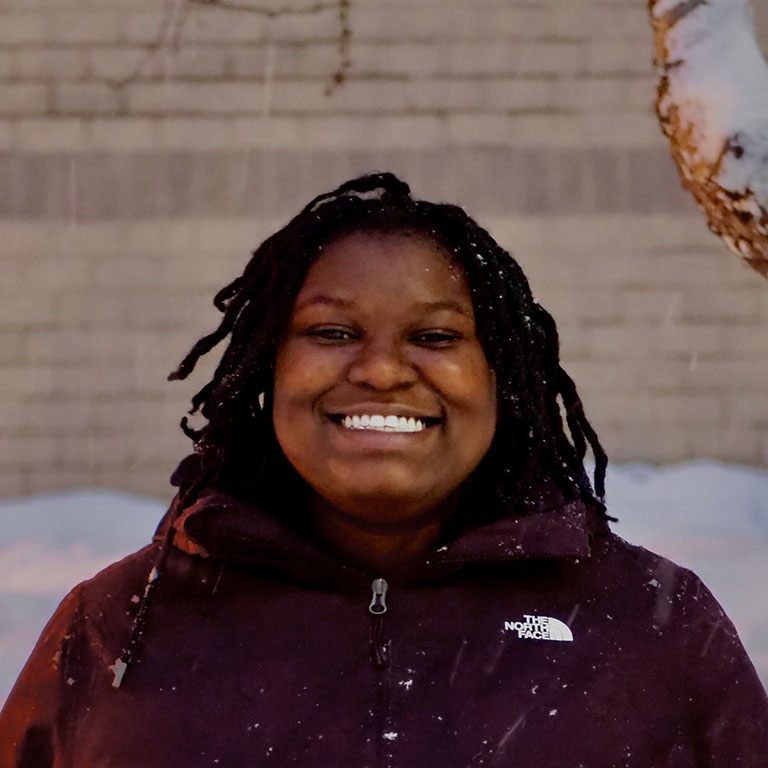
She said that she’s learned from the meetings that students have a great deal of healthy curiosity about decisions that are made on both the FCLC level and the University level.
“It’s become really evident to me that a lot of it is opaque, not because we intentionally make it opaque, but because just because it’s a large, complex bureaucracy. Any university is a large, complex machine,” she said.
“Students who want to understand how they can make an impact on the machine don’t know where the levers are.”
Amara McNeil would certainly count herself among those looking for levers to pull. A junior majoring in lighting design in Fordham Theatre’s design and production track, McNeil co-chairs the Black, Indigenous, and People of Color (BIPOC) Theatre Alliance of Fordham. McNeil had approached Auricchio in 2020 with concerns about her program, so when Auricchio told her about the new advisory council, she eagerly joined.
“I feel like there’s a lot more decision-making that happens under Fordham’s hood that should be transparent to students,” she said, adding that she loves being part of the group.
“I like that it’s comprised of students from all different years’ majors, residents, and commuters.”
The first meetings have brought forth questions revolving around issues such as the University’s endowment and how University leadership is chosen, McNeil said, noting that she hopes future meetings will address some of those questions.
After this month’s meeting, she said shared governance is a good example of an issue that could use more attention.
“It seems like we’re doing better than a lot of universities, and that’s something I hear a lot at Fordham, especially in the theater program,” she said.
“But that doesn’t mean we can’t improve, and we can’t be the best at something. That’s always the goal.”
Students who are interested in joining the advisory group next year are encouraged to e-mail [email protected].
]]>“We were talking about the difficulties we were sharing, and also the beautiful accords that can occur when you can be your full self when others accept you and your work. Often writers of color are in places where they can literally be policed. People will say ‘No, you shouldn’t use Spanish here,’ or ‘Someone’s grandmother really wouldn’t say that,’” she said.
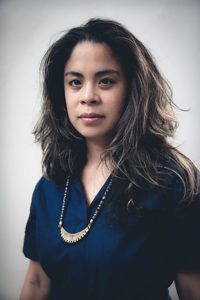
“So, it’s about thinking about the freedom that could exist within an Asian American space.”
After 14 years at the Rose Hill Campus, Kundiman, the nonprofit organization dedicated to nurturing writers and readers of Asian American literature, has expanded to include students at Fordham’s Lincoln Center campus.
For the past four years, Kundiman has hosted Fordham College at Rose Hill students in paid internships that were funded by the University.
Paid Internships
This summer, when the time came to renew the partnership, Maura Mast, Ph.D., dean of Fordham College at Rose Hill, and Laura Auricchio, Ph.D., dean of Fordham College at Lincoln Center, teamed up to contribute funding for the internships. In June, the first four FCLC students began working with Kundiman, which promotes artists through workshops, lectures, performances and an annual retreat.
For Auricchio, the partnership was appealing because it offers Lincoln Center students an intellectual, educational opportunity that also gives them real-world experience and networks. It also contributes to the college’s anti-racist initiative.
“That took on particular urgency last year as we were seeing an increase in attacks and anti-Asian hate crimes thanks to misunderstandings about COVID-19 that were sometimes blamed on people of Asian descent,” she said.
“It’s about artists who are fully engaged in making the world a better place, so its fully living Fordham’s mission of being people for others, making art for the others, and having a transformative impact on the artists themselves and the community beyond.”
Practical Skills and a Warm Community
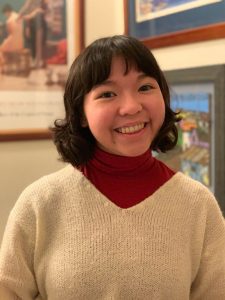
Bea Mendoza, a senior at Fordham College at Lincoln Center who is majoring in psychology and English with a creative writing concentration, began interning at Kundiman last summer as an operations intern. This fall, she joined the grants-writing team. A poet herself whose family hails from the Philippines, Mendoza has both participated in classes held by the group and helped coordinate them. She’s found the process of learning to write grants to be especially gratifying.
“It’s been such a warm community to be a part of,” she said.
“Interning with Kundiman has really opened my eyes to how much I want to continue working in literary nonprofits and to stay in the literary world.”
Stefan Valenti graduated in December from Fordham College at Lincoln Center with a degree in new media and digital design and a double minor in psychology and marketing. He began working with Kundiman as a communications intern in the fall, and has stayed on as an intern this spring.
“The idea of going into the workforce is a little intimidating because you’re never really sure of the culture you’re going to walk into, but Kundiman has been very supportive and understanding of newer workers,” said Valenti, whose father is Italian and whose mother is Indian.
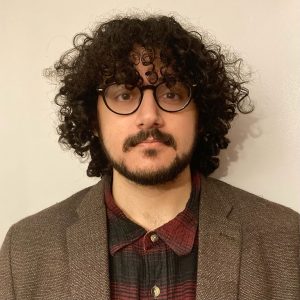
“I feel like this position really strikes a balance, because it allows me to be creative through copy writing and graphics, but I’ve also learned practical skills I can use for marketing or advertising.”
Valenti also said working with Kundiman has also widened his perspective about writing. A recent reading of Monsters Under the Bed by the poet W. Todd Kaneko, a Kundiman fellow, was especially compelling.
“The whole world of poetry is something I wasn’t into before, but after reading some of the fellows from Kundiman, I’ve opened my eyes a little bit. There are some poems where I read them, and I still don’t know what I’m supposed to be getting, but then there are other poems where I read it, and I say, ‘Oh, that is objectively good, I understand this,’” he said.
An Understanding of Nonprofits
Mast said funding student internships at Kundiman was a no brainer, given how much of a difference the group makes through programming geared toward high school and college students .
“I also think of the high school students who they work with, who have this first exposure to a Asian poet or fiction writer. For them to see themselves means they can see their future. That has a tremendous impact,” she said.
At Fordham, she said, “they’ve really brought those students into understanding how nonprofits work, with the fundraising, the publicity, the working with donors, but also building the community.”
She agreed that the partnership was an example of better coordination between her and Auricchio, similar to the Cultural Engagement Internships program that kicked off in May.
“Our students see themselves as Fordham students first, then they see themselves as Fordham College at Rose Hill students, and of course they have a campus identity, and that’s terrific,” she said.
“But we are one faculty of arts and sciences, one curriculum of arts and sciences, and I think the partnership I have with Laura has inspired me to think differently about programs supporting our students. We’re a good creative team, and when we work together, we’re able to do so much more because we’re able to build off each other.”
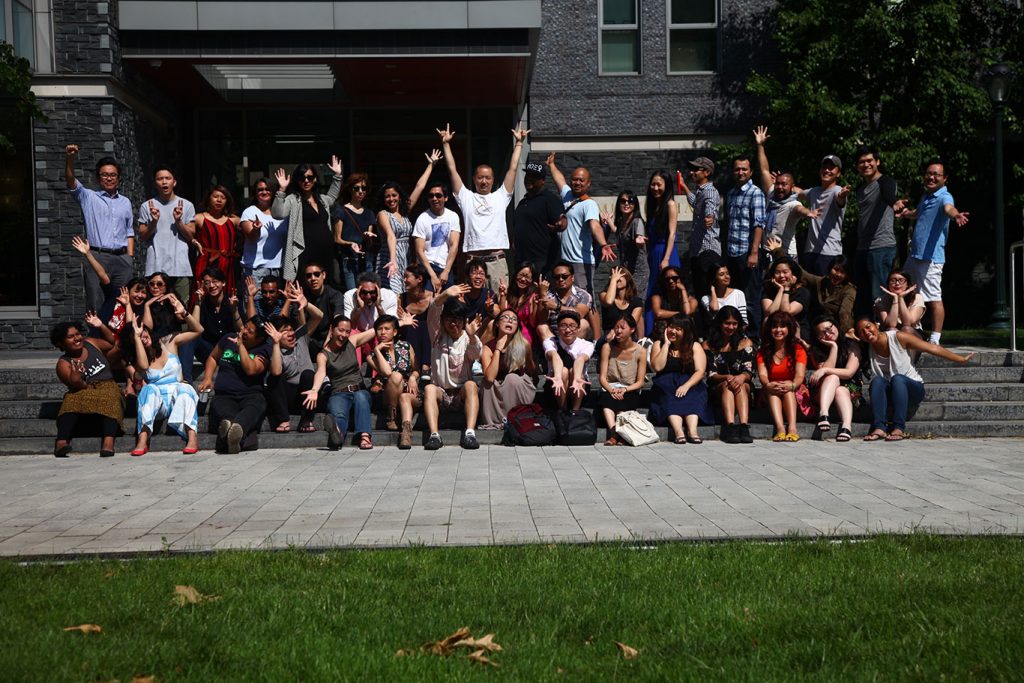
One of the 20th century’s most influential artists, Warhol is more often associated with Studio 54 and his iconic painting of Marilyn Monroe than attending Mass. Scholars of his work know about his Catholicism, but to many fans, his faith is something of a surprise. That faith, and its manifestation in his work, is the subject of a recently opened exhibition at the Brooklyn Museum titled, “Andy Warhol: Revelation.” And, it’s a subject that many students and Fordham experts—in subjects from art history to theology to law—can weigh in on and learn from.
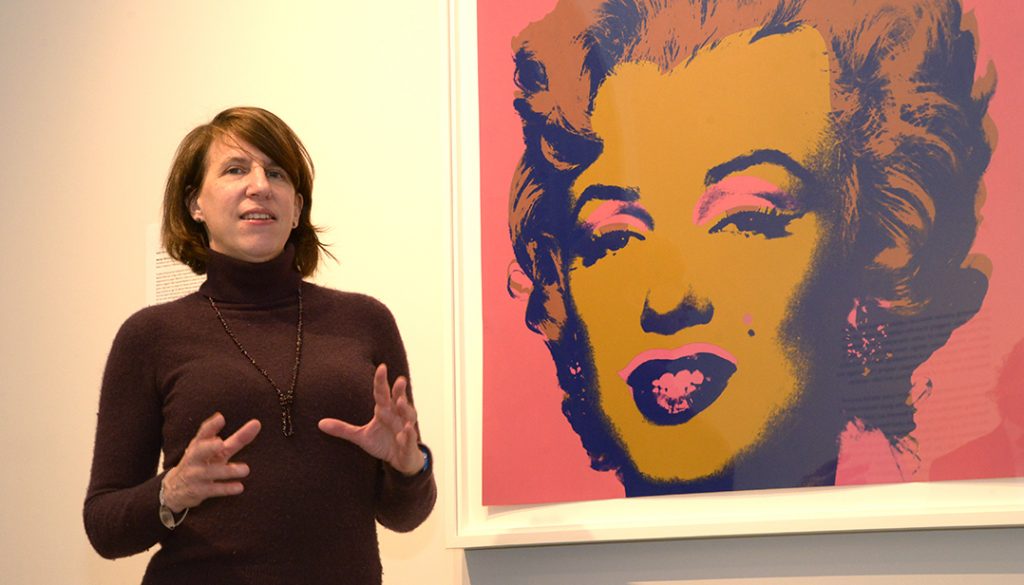
Catholic Versus Spiritual in Art History
“Warhol went into Catholic churches, so he wasn’t just generically quote-unquote ‘spiritual,’” said Laura Auricchio, Ph.D., dean of Fordham College at Lincoln Center, who has published on pop art, most notably on Warhol contemporary Robert Rauschenberg.
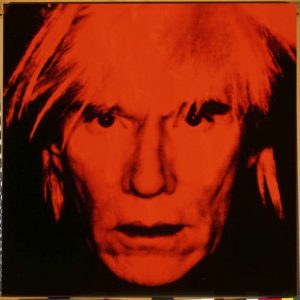
“Unlike the Abstract Expressionists who poured and splashed their inner selves onto canvas, Warhol and Rauschenberg drew their imagery from the outer world of commerce and consumption, finding their sources in billboards, magazines, and television,” she said.
Auricchio added that the public doesn’t know much about the faith of 20th century artists because critics, curators, and historians of modernism have largely ignored it. Even a recent New York Times review of the show questioned the depth of Warhol’s faith by citing a biographer who dismissed it and highlighted instead his superstitious nature, pointing out that Warhol also wore crystals. The show, which originated at the Warhol Museum in Pittsburgh, is an important step to not just reexamine Warhol’s faith, but also the faith of modernist artists generally, Auricchio said.
“Van Gogh was actually a deeply religious person, and most people don’t know that, so it’s probably no surprise that people don’t know that Warhol was in a deep and complex relationship with his faith,” Auricchio said. “The history of modernist art has largely written religion out. It has not written spirituality out, but it has written religion out.”
Indeed, it wasn’t until after his death that Warhol’s faith was even acknowledged in public, and in true Warhol fashion it was revealed at the epicenter of New York Catholicism: Picasso biographer John Richardson talked about it at Warhol’s memorial Mass at St. Patrick’s cathedral, said Auricchio.
“It has taken quite a long time for that narrative to take hold and be taken seriously—and that’s something else that really struck me in this show,” said Auricchio.
The Serial Effect
At the start of the Brooklyn Museum show, four icons of St. John, St. Andrew, St. Thomas, and St. Peter are arranged to mimic the altar screen from Warhol’s childhood church, St. John Chrysostom Byzantine Catholic Church in Pittsburgh. Beside them are ephemera from Warhol’s Catholic childhood, including his baptismal certificate.
The museum text notes that the way the saints are arranged on screens typically found on Orthodox Christian altars impart a serial effect, like the repetition found in Warhol’s famed silkscreens of celebrities. Indeed, the next section of the exhibition features a series of eight blue canvases titled “Jackie” that reflect that repetition via a series of silkscreens of Jaqueline Kennedy’s face culled from press clippings from just before and after her husband’s assassination.
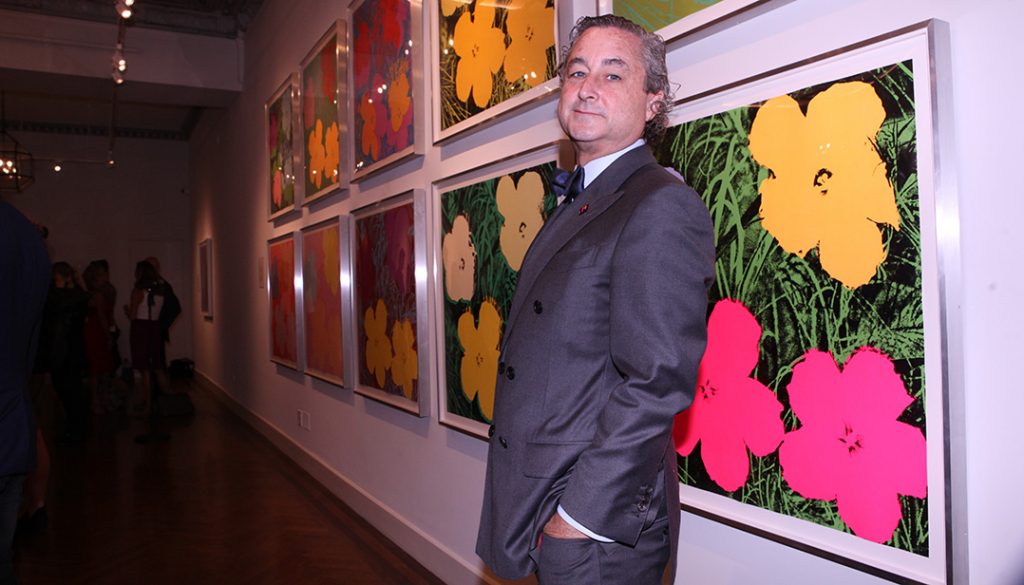
Appropriation as Art
In museums and art galleries, visitors are generally permitted to take photos for social media, but limitations are placed on photos for publication. Though Warhol frequently pulled photos from the newspaper to use in his own work, as he did in “Jackie,” using Warhol’s imagery of imagery is tightly controlled. Photos of “Jackie” were not permitted for publication.
It’s an irony that’s not lost on Raymond Dowd, LAW ’91, a partner at Dunnington Bartholow & Miller. Dowd is a member of the board of governors at the National Arts Club on Gramercy Park in Manhattan, where another show, “Andy Warhol Portfolios: A Life in Pop | Works from the Bank of America Collection,” closed just a week before the Brooklyn show opened.
Clocking in at more than 1,400 pages, Dowd’s book, Copyright Litigation Handbook (Thomson West, 2010), is a tome on the subject. He said that Warhol’s frequent appropriation—from Marilyn to Campbell’s Soup—probably couldn’t happen as easily today.
“The truth is that until the 1980s and 1990s, America had the weakest copyright laws in the world, which also unlocked tremendous creativity,” said Dowd. “We adopted restrictive copyright laws later on in the game and who knows whether or not that will truly restrict creativity?”
Dowd said that visual appropriation, whether by artists like Warhol, Richard Prince, Jeff Koons, or Shepard Fairey, is never going to be an entirely settled question. In many cases, he said, it’s beside the point. The very action of appropriation is often an artistic act.
“They’re playing with fire. They’re provoking those in power. They’re pushing the boundaries,” he said.
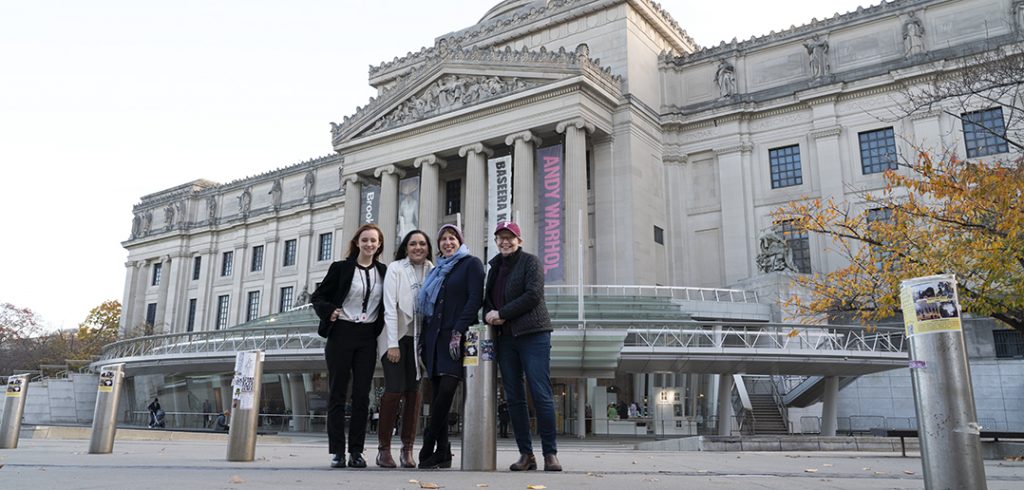
Opening Day: Fordham Deans and Interns
When “Revelation” opened to the public on Nov. 19, Maura Mast, Ph.D., dean of Fordham College at Rose Hill, joined Auricchio to see the exhibit along with two Fordham interns who had worked on the show from as part of Fordham’s Cultural Engagement Internship Program. The deans founded the program at the height of the pandemic; they were grateful to go to the museum in person and meet with students who had conducted research for the Department of Visitor Experience and Engagement.
“When I first learned about the new internship program, I realized that would be a perfect project for a Fordham undergraduate,” said Manager of Visitor Engagement Jessica Murphy, FCRH ‘91. “I recall that during my own time as a Fordham student, access to New York City’s museums and arts-related internships was invaluable.”
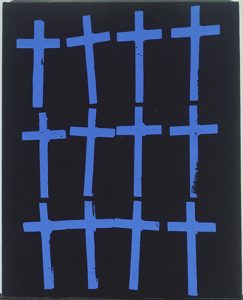
silkscreen ink on linen, 20 × 16 in.
“Revelation” weaves together art history, religion, gender, popular culture, and a New York context in a manner that Fordham’s liberal arts students are ideally prepared to contribute to and learn from, she said.
Indeed, both interns pulled from their Catholic and Byzantine backgrounds to examine and assist in the visitor experience.
Kassandra Ibrahim is a Fordham College at Rose Hill senior and an intern at the Orthodox Christian Studies Center. She said she was initially torn between pursuing art history over theology while applying for graduate schools, but she said the internship helped her come to an academic epiphany.
“I’d like to pursue art history, but I was always drawn back to my courses with the Orthodox Christian Studies Center because I’m interested in studying my own background. This show demonstrated that I don’t have to choose between two,” she said.
Fordham College at Lincoln Center senior Sarah Hujber learned a bit about her background as well.
“I grew up in a small two-mile-wide Polish town on Long Island, so I really related to his Eastern European upbringing and his wanting to move to New York and work in the art scene,” Hujber said. “I always related to that kind of wanting more and being in the busyness of the city.”
Hujber, who was tasked with researching the women in Warhol’s life, began to learn about the source and loss of many of her own family’s traditions. In examining Warhol’s mother, she viewed an Eastern European immigrant experience that was distinct from yet mirrored that of her family’s.
“I saw a lot of parallels between how my own family ended up here and the kind of traditions I heard about growing up,” she said. “We’re still Catholic, but we probably have lost some of the fullest traditions of Eastern European things that Warhol would have been a part of.”
An Icon’s Icons
Warhol’s parents, Andrej and Julia Warhola, immigrated to Pittsburgh from present-day Slovakia, a place that was once part of Czechoslovakia, which in turn was part of the Austro-Hungarian Empire and the Byzantine Empire before that. As such, the ever-shifting borders have little to do with Warhol’s ethnic identity, said Aristotle “Telly” Papanikolaou, Ph.D., the Archbishop Demetrios Chair in Orthodox Theology and Culture and co-founding director of the Orthodox Christian Studies Center. Warhol’s ethnicity has been variously described as Polish, Slovakian, and even Ukrainian—but his ethnicity was Ruthenian.
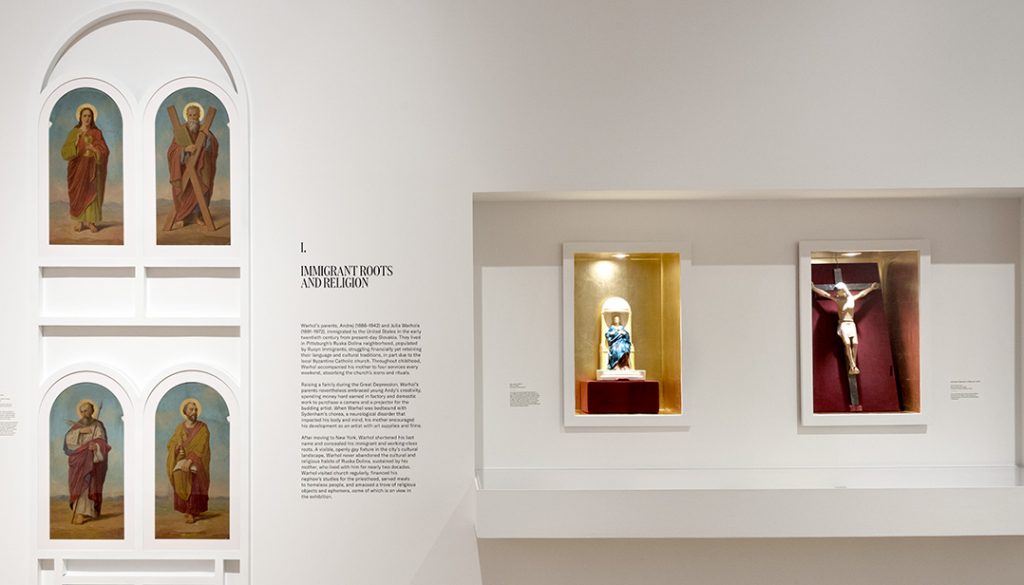
“I’m somewhat oversimplifying, but the Ruthenians were part of a group of Orthodox that are now part of the Catholic Church, who were able to keep their vestments, rituals, and married priests as long as they pledged allegiance to the pope,” said Papanikolaou. “Part of the Ruthenian heritage is an iconographic tradition and that’s one of the things that remains very much a part of them and why they’re sometimes called Greek Catholics.”
As mentioned, Warhol’s childhood church was indeed filled with Greek-influenced icons painted in the early 20th century and arranged in rows as part of the altar screen. But Papanikolaou noted that the four icons in the exhibit have a slight Western influence.
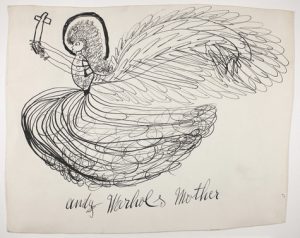
“Orthodox Christians went through a weird inferiority complex in the late 19th and early 20th century where their icons took on a bit more of a kind of naturalistic style. In other words, the figures evoke a bit of the Renaissance, but not in totality,” said Papanikolaou. “They melded these two traditions in ways that were really unique. It was only from the ’60s on where people started to go back to the original Byzantine style.”
Through her internship, Ibrahim learned about melding influences; she talked about how they carried on throughout Warhol’s work and can be seen in the show.
“He’s inspired by both the Byzantine aspects of iconography, and the iconic image of an individual in a one-point perspective, but then we see his Last Supper paintings [based on DaVinci’s]and you can see the influence of the Renaissance,” said Ibrahim, who was raised in the Greek and Coptic Orthodox traditions. “It’s kind of a mix because Byzantine Catholicism is also a mix. It is a fusion between an Orthodox visual reality and then Catholic doctrine. So, it’s in communion with the Catholic church, but visually it looks very Orthodox.”
‘The Symbol Is Everything’
Papanikolaou said that the flat one-point perspective of the early Byzantine icons is sometimes dismissed as being somewhat primitive, which does the artists and the church that commissioned them a disservice.
“They knew what they were doing,” he said. “They were trying to not look realistic because there trying to capture not just a historical event of the past but also point to an internal significance of the moment or a transcendent divine in the historical moment.”
Conversely, he said, an early renaissance painter like Giotto might paint the baby Jesus in a more realistic and cherubic manner to help the viewer to identify and participate in the earthly life of Jesus. Iconographers were not simply reminding believers of events, but rather they were symbols that allowed viewers to participate in an eternal reality.
“The symbol is everything, in a way, because the structure of the symbol really determines what it is that the viewer can participate in,” he said. “From that point of view, I can really see Warhol being influenced by that tradition. I think he’s trying to say that there is something of an eternal significance going on within these particular figures and even the particular events they’ve experienced in their lives.”
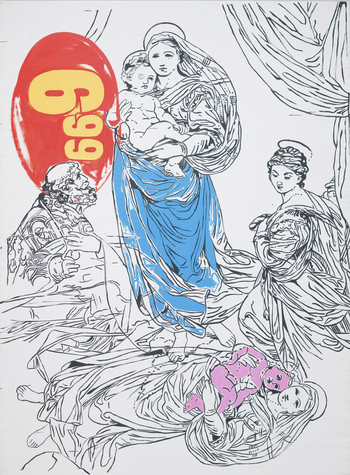
]]>
ZEPHYR TEACHOUT
Zephyr Teachout announces run for New York attorney general
AP News 11-15-21
Teachout, 50, is an associate professor of law at Fordham University and a scholar on corruption and antitrust laws.
LAURA AURICCHIO
The U.S.-France relationship has always had friction
The Washington Post 11-15-21
Laura Auricchio, Dean of Fordham College at Lincoln Center, is the author of “The Marquis: Lafayette Reconsidered” and serves on the scientific advisory board for France in the Americas, an international collaborative project led by the French National Library.
MARK NAISON
How GOP focused voters on critical race theory
USA Today 11-16-21
Mark Naison, a professor of history and African American studies at Fordham University, told USA TODAY that critical race theory is used as a label to attack all efforts to diversify school curricula. “There is no school system in the country which uses it as a basis for curricular development,” Naison said.
FORDHAM UNIVERSITY
Bachelor’s Degree Center Releases National Rankings of Real Estate Degree Programs
PR Newswire 11-16-21
Fordham University – Bronx, NY
ADMINISTRATORS
JEFEREY NG
Campus Counselors Are Burned Out and Short-Staffed
The Chronicle of Higher Education 11-15-21
Jeffrey Ng, director of counseling and psychological services at Fordham University, reports that the number of students seen for clinical appointments has risen 42 percent since last fall.
LAURA AURICCHIO
The U.S.-France relationship has always had friction
The Washington Post 11-15-21
Laura Auricchio, Dean of Fordham College at Lincoln Center, is the author of “The Marquis: Lafayette Reconsidered” and serves on the scientific advisory board for France in the Americas, an international collaborative project led by the French National Library.
BARBARA PORCO
Last Place Finish Of Systemic Risk Management Reporting In ESG Survey Raises Red Flags
Forbes 11-16-21
“All elements of ESG reporting are really based on proper risk management,” according to Barbara Porco, director for the Center of Professional Accounting Practices at Fordham Business School.
SCHOOL OF LAW
New report calls for greater equity in middle and high school admissions
Inside Schools newsletter 11-17-21
A new report by the Feerick Center for Social Justice at Fordham University School of Law calls on the city to overhaul middle and high school admissions by taking some concrete steps.
FORMER SCHOOL OF LAW FACULTY
ALISON NATHAN
President Biden Names Tenth Round of Judicial Nominees
The White House 11-17-21
Judge Nathan was a Fritz Alexander Fellow at New York University School of Law from 2008 to 2009 and a Visiting Assistant Professor of Law at Fordham University Law School from 2006 to 2008.
SCHOOL OF LAW FACULTY
BRUCE GREEN
Legal Professors’ Lawsuit Spotlights Resistance to Prosecutor Accountability
Filter Magazine 11-12-21
“Were [the state bar]motivated by the fact that the complaints were filed publicly so that a failure to act expeditiously would look bad?” Bruce Green, a Fordham Law professor not involved in filing the complaints, rhetorically asked.
MARTIN FLAHERTY
What one American’s case says about the future of the courts in Hong Kong
Vox 11-14-21
“My sense is that [Hong Kong’s rule of law is] on life support — but the prognosis is not very good,” said Martin Flaherty, a professor of international law at Fordham University.
ZEPHYR TEACHOUT
Zephyr Teachout announces run for New York attorney general
AP News 11-15-21
Teachout, 50, is an associate professor of law at Fordham University and a scholar on corruption and antitrust laws.
BENNETT CAPERS
Iowa scores lowest in the nation in policing and corrections spending
The Center Square 11-15-21
“These expenditures mean less money for schools, for libraries, for parks, you name it,” Fordham Law School Professor and Center on Race, Law, and Justice Director Bennett Capers said. “More importantly, they mean less money for things that could actually reduce crime, such as more affordable housing, job creation, and mental health treatment.”
JOHN PFAFF
Rittenhouse doesn’t have to prove he acted in self-defense
The Washington Post 11-15-21
John Pfaff is a professor of law at Fordham University. He is the author of “Locked In: The True Causes of Mass Incarceration and How to Achieve Real Reform.”
BRUCE GREEN
Bad romance: When courts won’t let lawyers and clients part ways
Reuters 11-16-21
As legal ethics expert Bruce Green, a professor at Fordham University School of Law, put it, “To have an effective lawyer-client relationship requires trust between the lawyer and the client.”
JOHN PFAFF
He’s Remaking Criminal Justice in L.A. But How Far Is Too Far?
DNYUZ 11-17-21
The single largest group in state prisons, totaling around 55 percent nationally, have been convicted of crimes of violence, according to John Pfaff, a law professor at Fordham University.
ALAN RUSSO
How Social Inflation is Changing Liability Insurance
Legal TalknNetwork 11-18-21
He’s also a regular lecturer for the National Business Institute on trial advocacy, and an instructor for the Corporation Counsel’s Trial Advocacy Program at Fordham University Law School and regular contributor to Lawline.
GABELLI SCHOOL OF BUSINESS FACULTY
DENISE BENNETT
Denise L. Bennett: Reaching a hand back in the business world
New York Amsterdam News 11-17-21
Along with her positions at iHeartMedia, Bennett just completed her first year as a professor at Fordham University’s Gabelli School of Business, where she teaches Advanced Business Communications at the graduate level.
ARTS & SCIENCES FACULTY
CHRISTINA GREER
Buffalo Mayor Byron Brown faces backlash after winning write-in campaign
City and State NY 11-12-21
“Oftentimes, if you’ve been elected four different times, you’re not terribly worried about a primary, and so you tend to let your guard down just a little bit,” Fordham University associate professor of political science Christina Greer told City & State. “Ask Joe Crowley, right?”
MARK NAISON
How critical race theory went from conservative battle cry to mainstream powder keg
Yahoo News via USA Today 11-15-21
Mark Naison, a professor of history and African American studies at Fordham University, told USA TODAY that critical race theory is used as a label to attack all efforts to diversify public school curricula.
SAUL CORNELL
Will SCOTUS Force Us All to Find Out How Polite an Armed Society Will Be?
History News Network 11-14-21
Fordham Professor Saul Cornell, one of the leading authorities on early American constitutional thought, led 16 professors of history and law in a brief, arguing that “One of the longest continuous traditions in Anglo-American law are limits on the public carry of arms in populous areas.”
SAUL CORNELL
Former Prosecutor: “Wild West” Will Follow If NY Carry Laws Struck Down
BearingArms.com 11-15-21
Fordham Professor Saul Cornell, one of the leading authorities on early American constitutional thought, led 16 professors of history and law in a brief, arguing that “One of the longest continuous traditions in Anglo-American law are limits on the public carry of arms in populous areas.”
MARK NAISON
BronxTalk I November 15, 2021 – Racial Disparities
Bronx Net 11-15-21
…Dr. Mark Naison, Professor of African American Studies and History at Fordham University and Founder and Director of the Bronx African American History Project.
CHARLES CAMOSEY
Catholic groups criticize Archbishop Gomez for speech on ‘woke’ movements
Crux.com 11-16-21
He is an associate professor of theological and social ethics at Jesuit-run Fordham University.
MARK NAISON
How GOP focused voters on critical race theory
USA Today 11-16-21
Mark Naison, a professor of history and African American studies at Fordham University, told USA TODAY that critical race theory is used as a label to attack all efforts to diversify school curricula. “There is no school system in the country which uses it as a basis for curricular development,” Naison said.
CHRISTINA GREER
As N.J. Dems lick their wounds over 2021, 2022 looms
New Jersey Monitor 11-17-21
Christina Greer, politics professor at Fordham University, pointed to the failure of the party to capitalize on popular provisions in the infrastructure and spending bills that have been D.C.’s focus for months.
ATHLETICS
Largest Number of Ridgefield High School Athletes Ever Participate in Signing Day
Ridgefield’s Hamlethub 11-12-21
Daniel Bucciero, RHS class of 2022, has signed a National Letter of Intent to play Division 1 baseball at Fordham University…Miranda Bonitatebus, RHS class of 2022, has signed a National Letter of Intent to swim on the women’s swim and dive team at Fordham University…Eva Niemeyer, RHS class of 2022, has signed a National Letter of Intent to play women’s soccer at Fordham University in New York.
That Noise You Heard Was The Entire Atlantic Ten Conference Shitting Their Pants; The Loyola Ramblers Will Join The A10 In 2022
Barstool Sports 11-17-21
Fellow Jesuit institutions Fordham University, Saint Joseph’s University and Saint Louis University are current members of the Atlantic 10 Conference and in joining the A-10, Loyola will renew rivalries with The University of Dayton, Duquesne University, La Salle University and Saint Louis University, which were all-conference foes of the Ramblers at one time in the Midwestern Collegiate Conference.
STUDENTS
Amid Black exodus, young Catholics are pushing the church to address racism
The Washington Post 11-15-21
To John Barnes, who will be leading an upcoming webinar episode, says, “Black people always exist in liminal spaces.” Barnes, a doctoral student in systematic theology at Fordham University, converted to Catholicism in his 30s and said he was drawn by the religion’s sacraments and rituals.
Food Insecurity Linked to Disordered Eating in Patients With Obesity
Clinical Advisor 11-15-21
While more than 14 million US households experience food insecurity, research on the relationship between food insecurity and eating pathology is only just emerging, explained Jill Stadterman, MA, of Fordham University, and lead author of one of the studies with coauthors Yvette G.
ALUMNI
Former Japanese Princess Arrives In U.S. For New Life With Husband
Forbes 11-14-21
Mako is the elder daughter of Japan’s Crown Prince Fumihito and niece of Emperor Naruhito, while her new husband was raised by a single mother and graduated from Fordham Law School, according to the Associated Press.
Cedar Fair hires a new chief legal officer
CrainsCleveland.com 11-15-21
Nurse earned a bachelor’s degree from the University of Pennsylvania’s Wharton School and a law degree from Fordham University School of Law.
Built on Beer
RichmondMagazine.com 11-15-21
McKay graduated from Fordham, earning his MBA, and Murtaugh attended Siebel Institute of Technology, the oldest brewing school in the United States, with campuses in Chicago and Germany.
Sam Ramirez Jr., a second-generation investment executive for the people
Al Dia 11-17-21
He earned a bachelor’s degree in economics from the University of Vermont, before pursuing two MBAs at Dartmouth and Fordham University, respectively.
Bressler, Amery & Ross Welcomes Jorge Campos as Counsel in New York Office
PR Newswire 11-17-21
He went on to earn his Executive MBA in Global Business from Thunderbird School of Global Management in Arizona and an LL.M in Intellectual Property and Information Technology from Fordham University School of Law.
Msgr. John P. “Doc” Monaghan (1890-1961)
Catholic New York 11-17-21
Assigned to St. Peter’s Church on Staten Island, Father Monaghan taught at St. Peter’s Boys and Girls High Schools, while pursuing a doctorate in English literature at Fordham University.
Crowder College names finalists for president
The Joplin Globe 11-16-21
She holds a doctorate in educational leadership, administration and policy from Fordham University in New York, and a master’s degree in higher education administration and a bachelor’s degree in international marketing from Bernard M. Baruch College, CUNY, in New York.
Loyola Academy names new president
Evanston Now 11-17-21
He holds bachelor’s degrees from the University of Dayton in mechanical engineering and English and master’s degrees in English from Pennsylvania State University, in philosophy from Fordham University, in theology from Boston College, and in educational policy and management and in public administration from Harvard University.
Four finalists announced in Crowder College President Search
FourStatesHomepage.com 11-17-21
She previously served as Administrator for Retention and Student Success at Bronx Community College, CUNY, in New York, NY. Dr. Simpson earned a Doctor of Education in Educational Leadership, Administration and Policy from Fordham University in New York, NY; a Master of Education in Higher Education Administration, and a Bachelor of Business Administration in International Marketing from Bernard M. Baruch College, CUNY, in New York, NY.
Erin Dahl, Home Décor Expert for MyDomaine
MyDomaine.com 11-18-21
She went on to study French Language & Literature and International Political Economy at Fordham University in the Bronx.
Cuban scholar publishes new book detailing Cuba’s history through stamps
The Independent Florida Alligator 11-17-21
In the U.S. he earned a J.D. from Fordham University Law School and a M.A. in Political Science from Columbia University.
OBITUARIES
James Brundage
Lawrence Journal-World 11-15-21
B.A. (1950) and M.A. (1951) from the University of Nebraska; Ph.D. (1955) Fordham University.
Betty Starr, 93, longtime Katonah resident, educator and St. Luke’s parishioner
The Record-Review 11-15-21
She received a Bachelor of Arts degree in elementary education from Fordham University and a master’s degree in education administration from the University of Chicago.
William J. DuMond
Legacy.com 11-16-21
Will attained a perfect score on his college entry exam and received an academic scholarship to Fordham University.
Sister Maureen McDermott, Catholic school leader, dies at 65
CatholicPhilly.com 11-17-21
Along the way she earned a master’s degree in English from West Chester University and a Ph.D. in Catholic educational leadership from Fordham University.
Vincent R. Harter
Legacy.com 11-18-21
Vince’s essence remains with us.
Vince was a graduate of Fordham University, served in and retired from the United States Air Force, worked in the private sector, was involved in the wellbeing and maintenance of St. John’s Catholic School in Belleville, coached sports, volunteered his time at St. Luke’s in Belleville and never knew a stranger.
The April 29 event was the deans’ second forum for alumni on their commitment to furthering the University’s action plan for addressing racism and educating for justice. Fordham announced the plan in June 2020 after nationwide protests against police brutality and racial injustice prompted members of the Fordham community to describe their own experiences of discrimination on campus.
“We’re asking hard questions, addressing proposals that have come forward, and moving forward indeed with hope and confidence into a future … that is marked by greater inclusivity, greater diversity, and greater commitment shared to building a much more just world as we educate for justice and seek to eradicate racism,” said Joseph M. McShane, S.J., president of Fordham, in opening remarks.
Father McShane and the four deans were joined by moderator Valerie Irick Rainford, FCRH ’86, a Fordham trustee who is spearheading anti-racism training efforts within the University, and Rafael Zapata, Fordham’s chief diversity officer.
The panelists spoke of changes underway in the curriculum, recruitment of faculty and students, new programs, and other efforts to embed anti-racism in the University and effect permanent change.
“For students to come here from different backgrounds, it is vitally important that they feel that this institution represents them, that they do not feel like … they are here on sort of sufferance, that they feel that their communities are a part and parcel of what makes Fordham tick, what makes Fordham an excellent place,” said Tyler Stovall, Ph.D., dean of the Graduate School of Arts and Sciences.
Faculty Diversity, Community Connections
Stovall emphasized the importance of forging links between the University and the diverse, vibrant communities surrounding the Rose Hill and Lincoln Center campuses. Zapata noted current efforts like a collaboration with the Bronx Book Festival and a speaker series focused on Bronx writers facilitated by faculty. “We are an institution of this wonderful borough, and I think that’s something we need to talk about a little bit more,” he said.
In efforts to diversify the faculty, Eva Badowska, Ph.D., dean of the Faculty of Arts and Sciences and associate vice president for arts and sciences, said 50% of the arts and sciences faculty members recruited to begin this academic year are people of color. In addition, Fordham announced the creation of the Margaret Peil Distinguished Chair in African and African American Studies and is currently recruiting for a newly created postdoctoral fellowship in critical race studies in the sociology and anthropology department, as well as a new position in the English department—a rhetoric specialist—to support the faculty’s work on revising the composition program toward anti-racist learning objectives and pedagogy.
Arts and Sciences also announced the creation of a new affiliate program in African and African American studies to elevate that department’s visibility and foster an interdisciplinary approach to anti-racism, Badowska said. Fifteen faculty members across departments have committed to joining the initiative.
On the point of hiring diverse faculty, Rainford noted that “once you hire those individuals, I think it’s also about inclusion and access.”
Stovall said a newly formed group of Fordham faculty members of color would be meeting soon to discuss diversity among faculty and at the University generally. “I think these leaders are going to have an awful lot to say, and it’s going to be up to us to listen,” he said.
He pointed out the importance of integration, “one of the terms we tend not to talk about.”
“Ultimately, what we are all about in this endeavor is producing an integrated educational experience and ultimately an integrated society,” he said. “Study after study has shown, in despite of people’s fears of integration, that actually integrated education benefits not just students of color but all students, and makes them stronger students.”
“This is a major pathway towards the ultimate goal of Fordham University,” he said.
Zapata said his office is offering a grant program titled Teaching Race Across the Curriculum to help academic departments integrate questions of race within their courses, particularly those that all students take.
“Students want to see themselves in the people that teach them, that they encounter throughout [the University], but they also want to see themselves in the curriculum. They’ve talked a lot about that,” he said.
Expanding Scholarship and Internship Opportunities
Laura Auricchio, Ph.D., dean of Fordham College at Lincoln Center, pointed to the Office of Undergraduate Admission’s “above-and-beyond” efforts to increase diversity among incoming students. Changes this year include an effort “to appreciate and value a wider range of student experiences in the admissions process,” she said, as well as new events for prospective students of color who would be part of the fall 2021 entering class.
Also important, Auricchio said, is the recently created Trustee Diversity Scholarship Fund, which grew out of a scholarship fund that Rainford founded. “Before we could even announce it, we were starting to get donations,” Rainford said.
A new Cultural Engagement Internships program, funded by Fordham College at Lincoln Center and Fordham College at Rose Hill, has created paid internships that place students with New York nonprofits and cultural organizations that mostly serve communities of color or advance the work of anti-racism. “This opens up the internship opportunities to students who might not otherwise be able to afford” to take unpaid internships, Auricchio said.
And diversity in the yearlong Matteo Ricci Seminar for high-achieving students on both campuses has grown by opening it up to all students who want to apply, rather than relying on a select pool of students recommended by faculty, she said; she also cited the importance of bringing on Assistant Dean Mica McKnight, a woman of color, as co-leader for the Fordham College at Lincoln Center program.
Supporting Students
In other efforts on the undergraduate level, Maura Mast, Ph.D., dean of Fordham College at Rose Hill, said administrators on both campuses are developing a program to support first-generation students—61% of whom are students of color—and their families as the students navigate college life. At Rose Hill, the college is expanding access to undergraduate research opportunities by developing a one-credit course on the ins and outs of conducting research, such as developing a proposal and finding a mentor, Mast said.
“It’s … so important that we intentionally support students as they are and who they are, when they get to Fordham and when they’re at Fordham—that we are transparent and effective in this work,” she said.
In a culmination of longstanding efforts to increase diversity in the college’s Honors Program, 60% of students offered admission this year are either BIPOC (Black, Indigenous, or people of color) or first-generation students, Mast said.
The University has also secured a planning grant from the Howard Hughes Medical Institute to join a national learning community aimed at building capacity for developing inclusive, equitable, anti-racist approaches to STEM education—in first-year “gateway” courses, in particular—to support students who are underrepresented in these fields, she said.
The panelists took questions, including one about why the University doesn’t have an Asian American studies program with a major and minor offered. Badowska said she had met with members of the faculty—which would have to propose any new program, according to University statutes—about surveying the existing classes and resources to see what might be offered immediately while they work on developing a program.
“It is the curriculum that reveals who we are, and it is our academic programs that say we’re an anti-racist university or we are not an anti-racist university,” she said. “So that’s one of the reasons why an Asian American studies program is so critical for us to develop at this moment.”
Eradicating Racism
In response to another question—“Do you really believe that racism can be eradicated at Fordham?”—Rainford spoke of a long-term effort.
“There are some that still believe that racism doesn’t exist,” said Rainford, who is Black. “But the fact of the matter is, it’s in the fabric of everything in the country.”
“It will take time and effort, and we will not eradicate racism in our lifetime, but we certainly can help advance racial equity,” such as through the efforts the deans described, she said.
Zapata responded, “It’s going to take courage, the courage to … listen to the experiences of people who don’t always feel they have a chance to voice their experiences.”
Stovall said, “We currently live in a world where scientists are literally talking about creating human immortality in less than a century. So in that kind of world, I think all sorts of things are possible, including eradicating racism.”
Hurdles to Surmount
Asked about obstacles the University faces, Mast mentioned funding—for staffing, on-campus housing, and financial aid, for instance.
Badowska spoke of the challenges that would be inherent in changing the University’s culture to a point where everyone in the arts and sciences community would possess the five competencies that the deans have proposed:
- Knowledge about racism, white privilege, and related topics;
- Self-knowledge and a commitment to self-work and continuous learning in these areas;
- Commitment to disrupting microaggressions and racist dynamics in the classroom, the workplace, and beyond;
- Commitment to systemic change through examining policies and practices to make sure they support racial equity; and
- Reimagined community and allyship, or a capacity to form equitable partnerships and alliances across racial lines.
“We know that we have a long road before we can say that everyone has these five capacities, but we’ve identified them,” she said.
The event drew 64 attendees, nearly all of whom stayed nearly a half-hour beyond the event’s one-hour allotted time.
“That, I think, shows the great hunger and thirst that the people of Fordham have for this great work that we’re about together,” Father McShane said. “One of the things we have to remind ourselves is that this is a beginning, and that’s an important observation and an important thing for us to own. We have a long journey ahead of us, but we are up for it and will keep at it.”
]]>